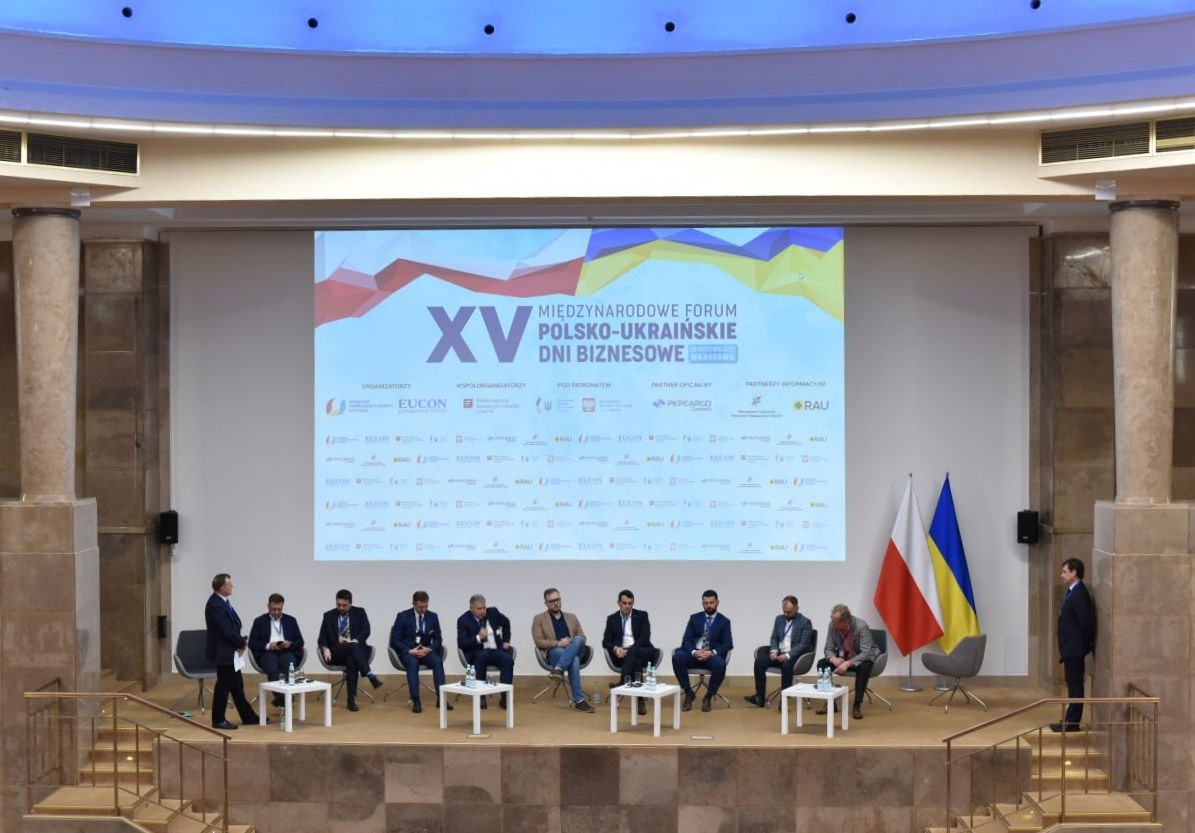
During 8 years of existence, the International Forum “Polish-Ukrainian Business Days” has been transformed into one of the largest and most important communication platforms, uniting representatives of the business community, employers, financial institutions, government officials and government agencies of Ukraine and Poland. That is why the jubilee XV International Forum “Polish-Ukrainian Business Days” on April 28 in Warsaw became the epicenter of consolidation of the business environment to support Ukrainian and Polish enterprises in Ukraine in the face of military aggression, improve trade and economic cooperation and establish business contacts between Ukraine and Poland.
The results of 8.5 hours of the forum were:
- 4 panel discussions;
- 38 speakers;
- 100+ participants;
- signing of a tripartite Memorandum of Cooperation between PKP Cargo Connect, Volyn Military Regional Administration and the Association of Ukrainian Business in Poland;
- formation of a constructive dialogue on real mechanisms for strengthening trade and economic Polish-Ukrainian cooperation, features of temporary business relocation, as well as prospects for post-war reconstruction of Ukraine.
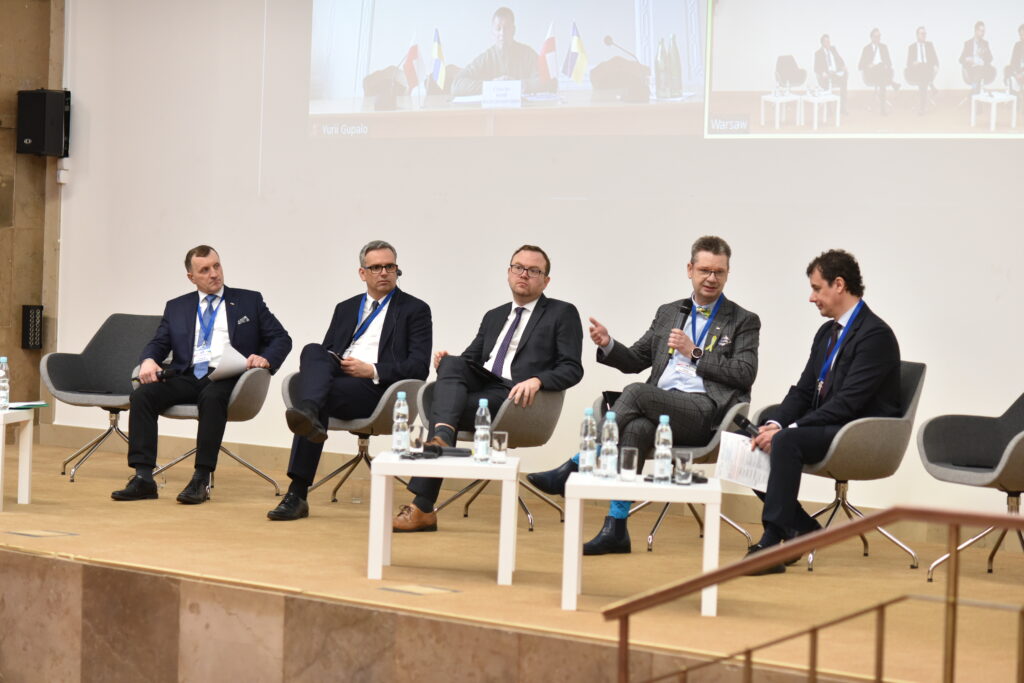
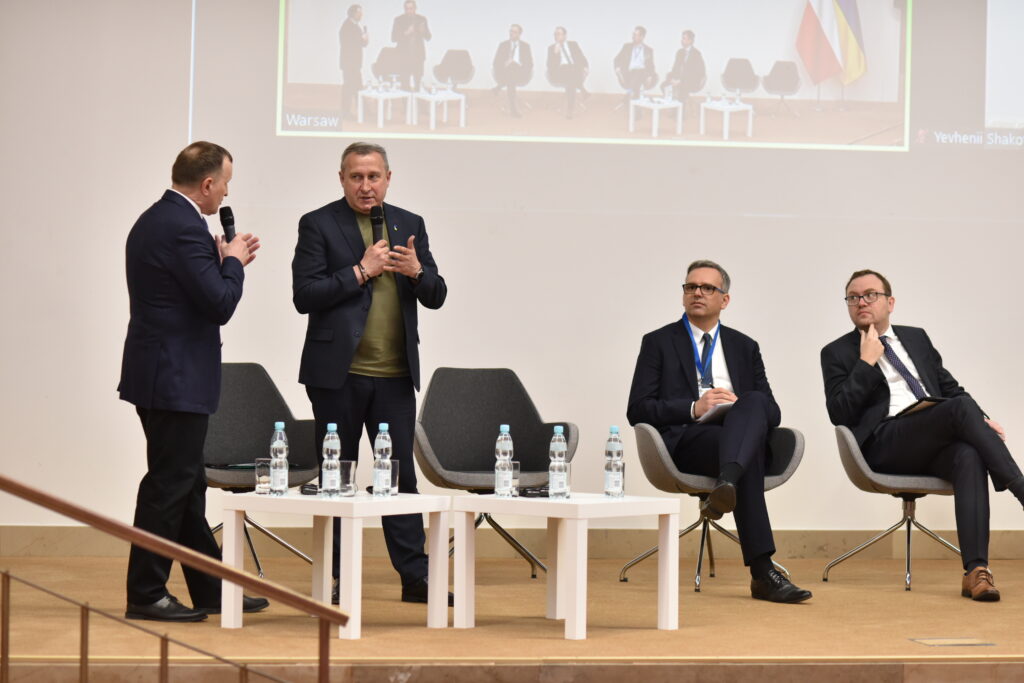
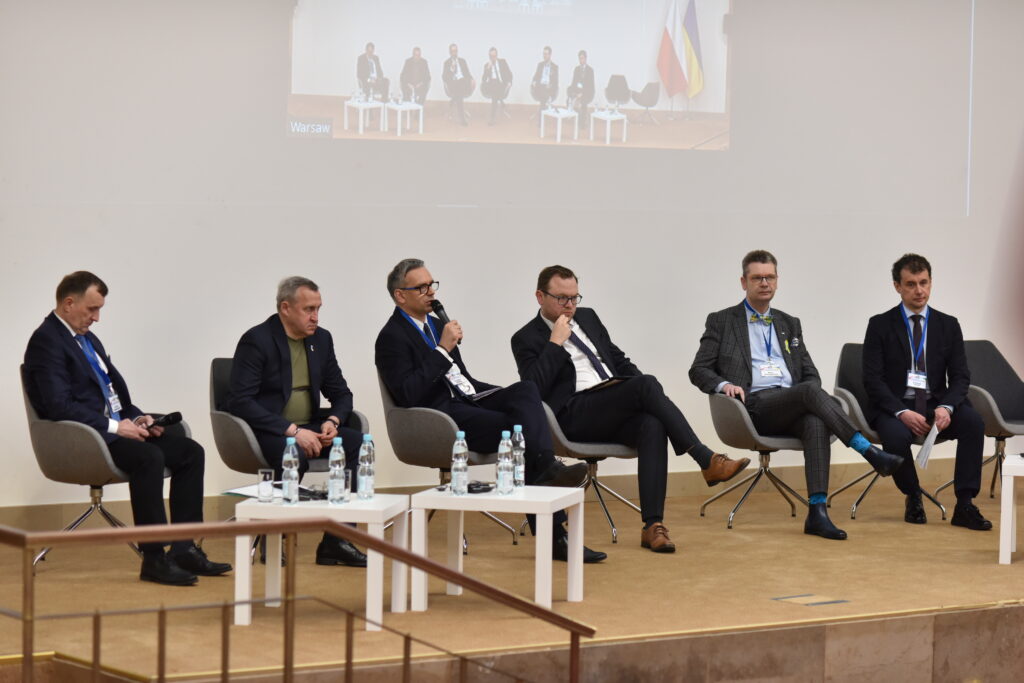
The event was opened with welcoming words by the organizers of the forum represented by the co-chair of the Ukrainian Business Association in Poland, managing partner of the EUCON Legal Group Yaroslav Romanchuk and the chairman of the Ukrainian Business Association in Poland, member of the National Investment Council under the President of Ukraine Ireneusz Derek. The speech addressed and highlighted the heroism and courage of Ukrainians in the difficult times of war, unprecedented comprehensive and active assistance from the first days of the war from neighboring Poland, the need to support the economic front as a reliable rear for the military in the context of international cooperation and creating a platform to find ways to rebuild Ukraine with foreign partners. The organizers and moderators of the first two panel discussions of the event in particular focused on the fact that trade rates between Poland and Ukraine last year reached an absolute record since 2014, which is a marker of growing importance of Ukrainian-Polish economic relations.
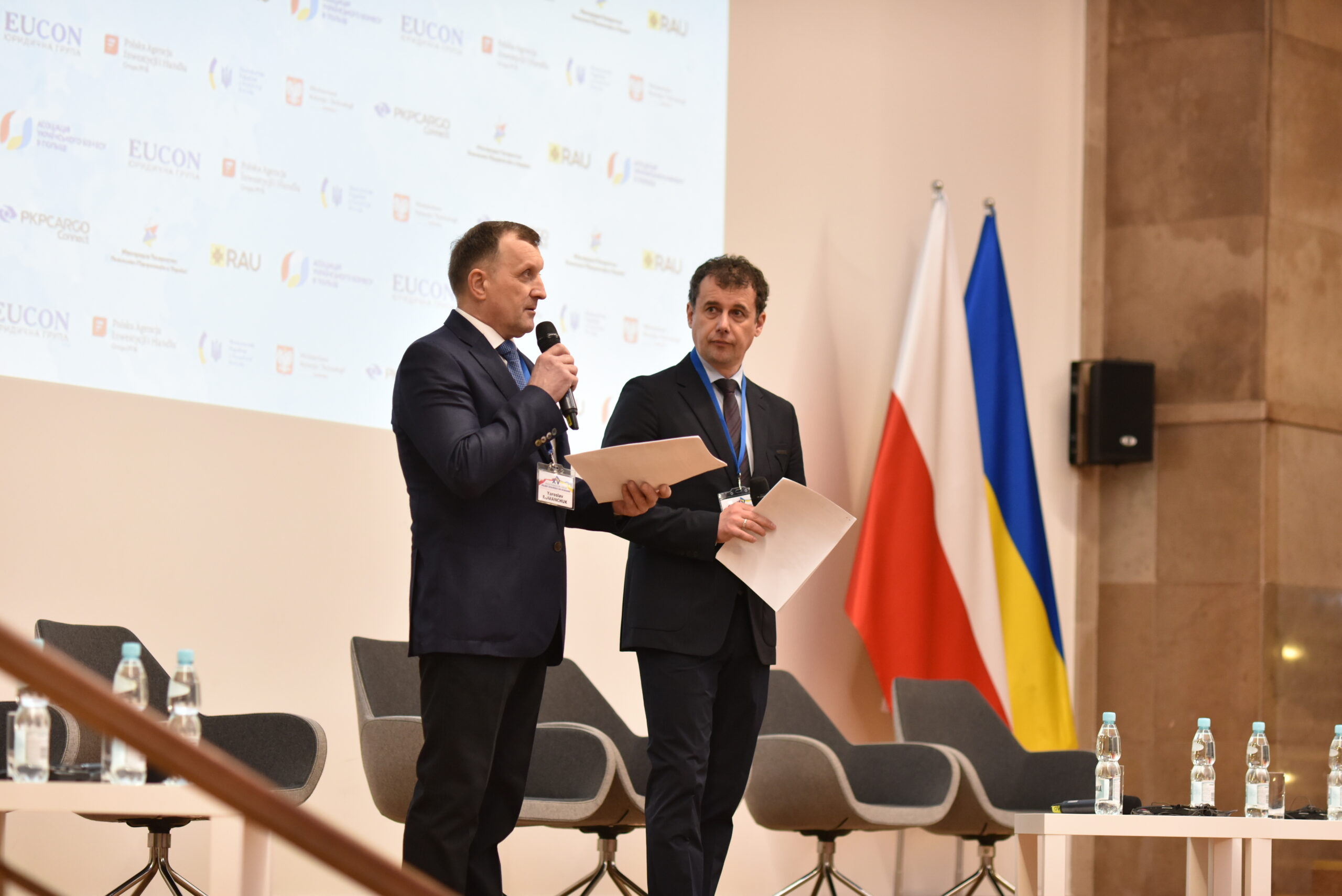
Panel discussion 1 “Trade and economic cooperation between Ukraine and Poland: past successes and prospects for the future” was opened by a welcoming speech by the Minister of Development and Technology Waldemar Buda. The Minister expressed his support for the Ukrainian people, noting that all previous problems with the start of a full-scale war in Ukraine have become secondary, while support, comprehensive assistance, strengthening of the growing economic relations and efficient logistics have come to the fore. Waldemar Buda also noted that Poland should become a kind of hub for establishing links between relocated Ukrainian business and the European market in the context of integration processes.
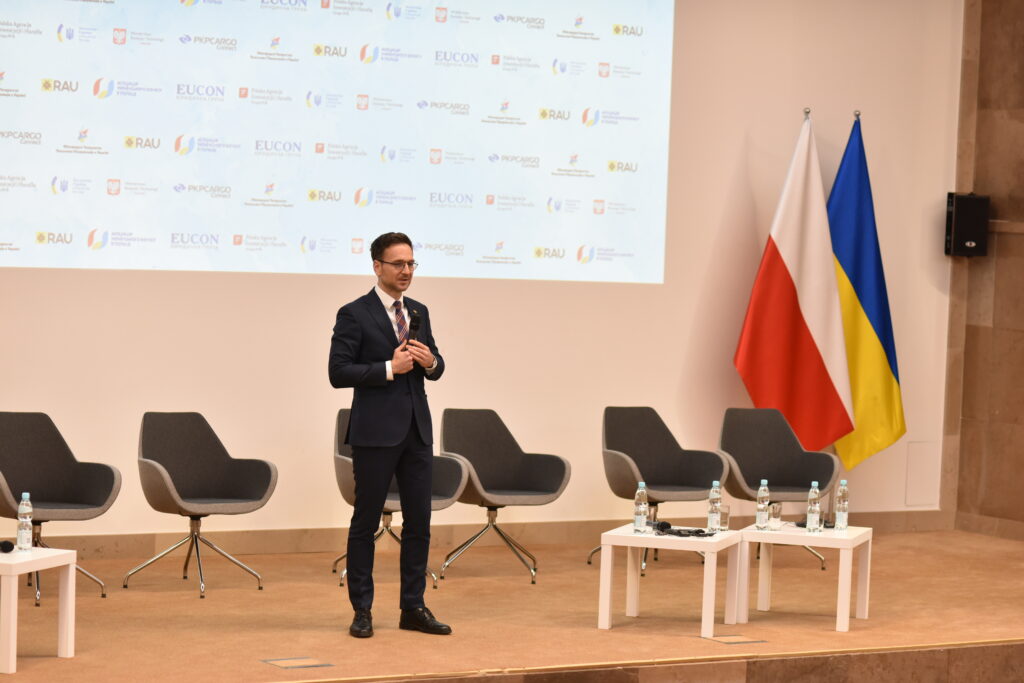
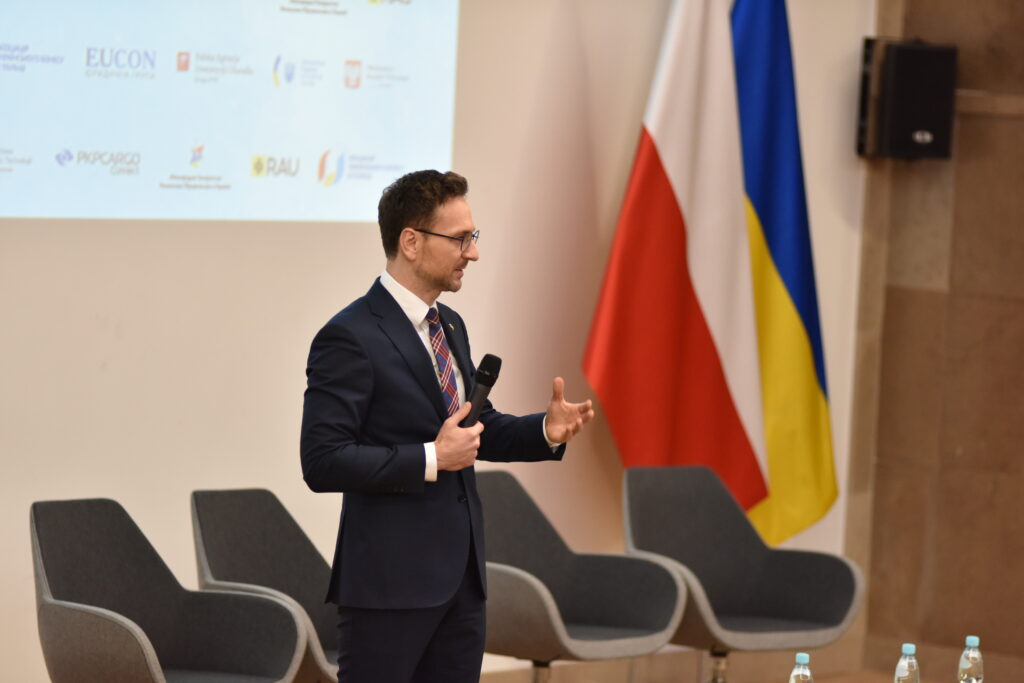
“The task of Ukrainian diplomacy was to strengthen economic cooperation – and it was achieved by achieving a record amount of trade between the two countries in the amount of 10 billion dollars. Now diplomats have another task – to establish effective military diplomacy, so we appeal to the whole world, which should support Poland not only economically but also in supply of weaponry”, – said Extraordinary and Plenipotentiary Ambassador of Ukraine in Poland Andriy Deshchytsia. Mr. Ambassador also stressed the inevitability of the victory of Ukrainians in the war and the importance of assistance provided by Poland and the Polish authorities, in particular in the shelter of more than 2 million Ukrainian refugees and the transfer of military, humanitarian and financial assistance.
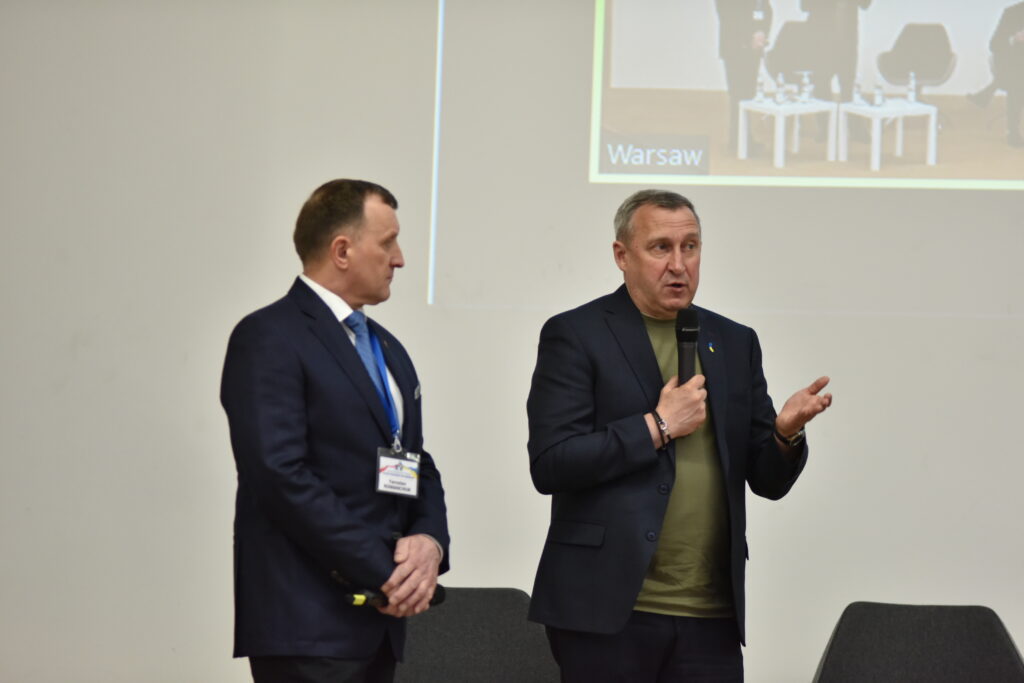
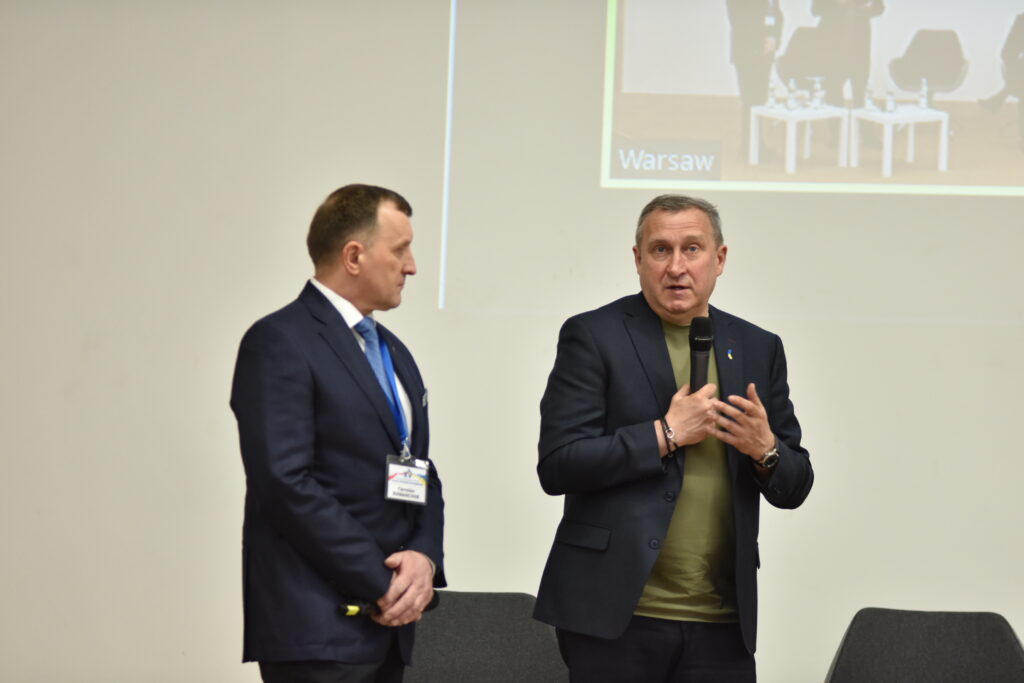
Krzysztof Drynda, Chairman of the Board of the Polska Agencja Inwestycji i Handlu, focused on the liberalization of Ukrainian legislation to provide humanitarian necessities, the movement of Ukrainian migrants in the Polish economy, the distribution of Polish goods in Ukraine and others. Mr. Drynda informed the participants that PAIH had provided Ukrainian migrants in Poland with free coworking, which could be used by anyone. In particular, in this coworking it is planned to open the center “Diya. Business ” to support Ukrainian entrepreneurs.
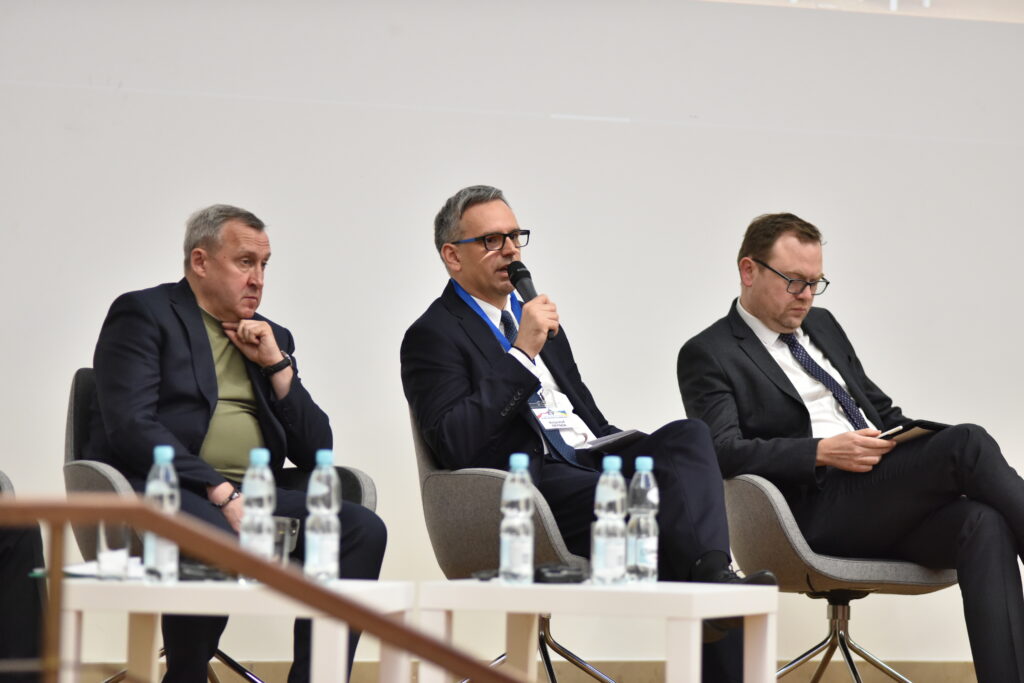
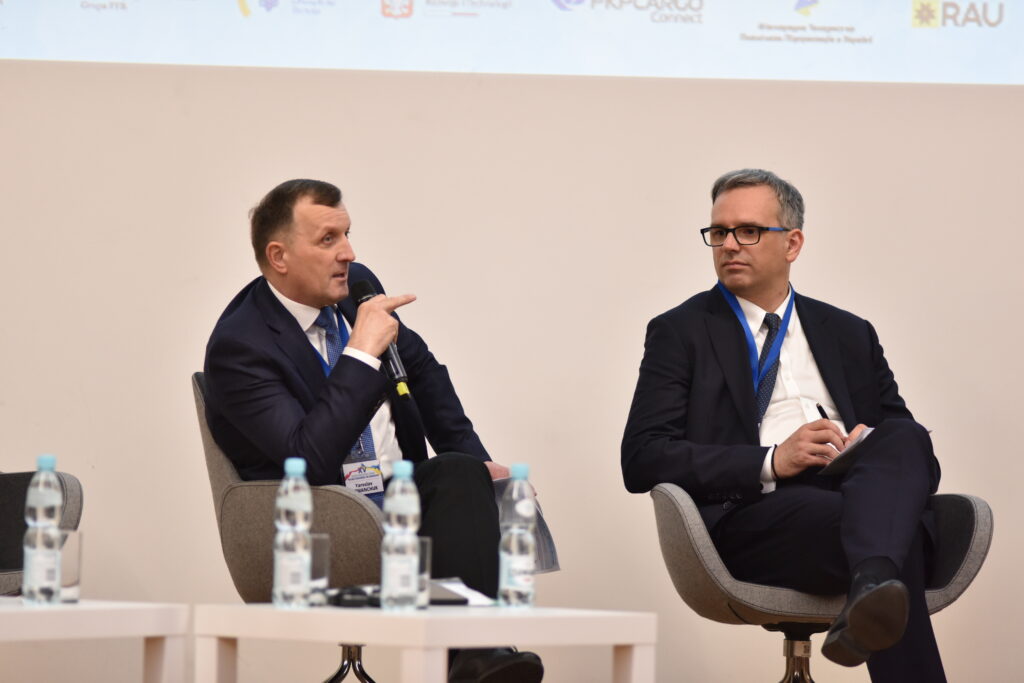
According to Dr. Adam Eberhardt, Director of the Center for Oriental Studies, Plenipotentiary of the Prime Minister for Reforms in the Republic of Moldova, it is necessary to start a constructive dialogue on Ukraine’s reconstruction, involving frozen Russian foreign exchange reserves, and prepare a reliable and flexible legal framework base for attracting European investors. Mr. Eberhardt also drew attention to the need for local cooperation between Ukrainian and Polish businesses, the need for close cooperation at the state level, the involvement of public financial instruments and the speedy restoration of infrastructure, including railways, to restore supply chains.
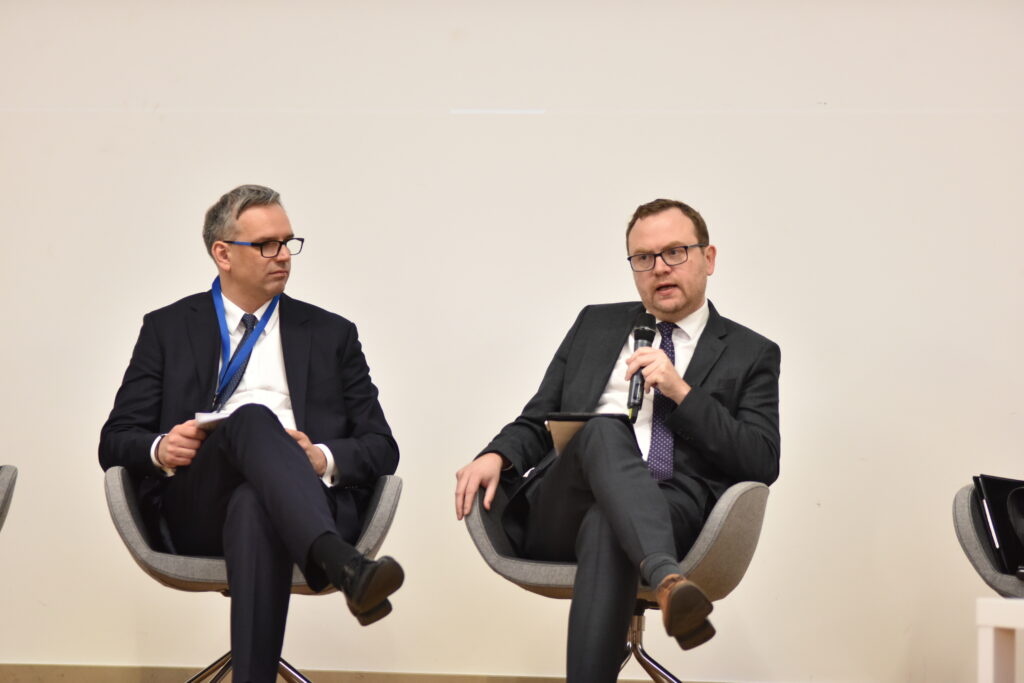
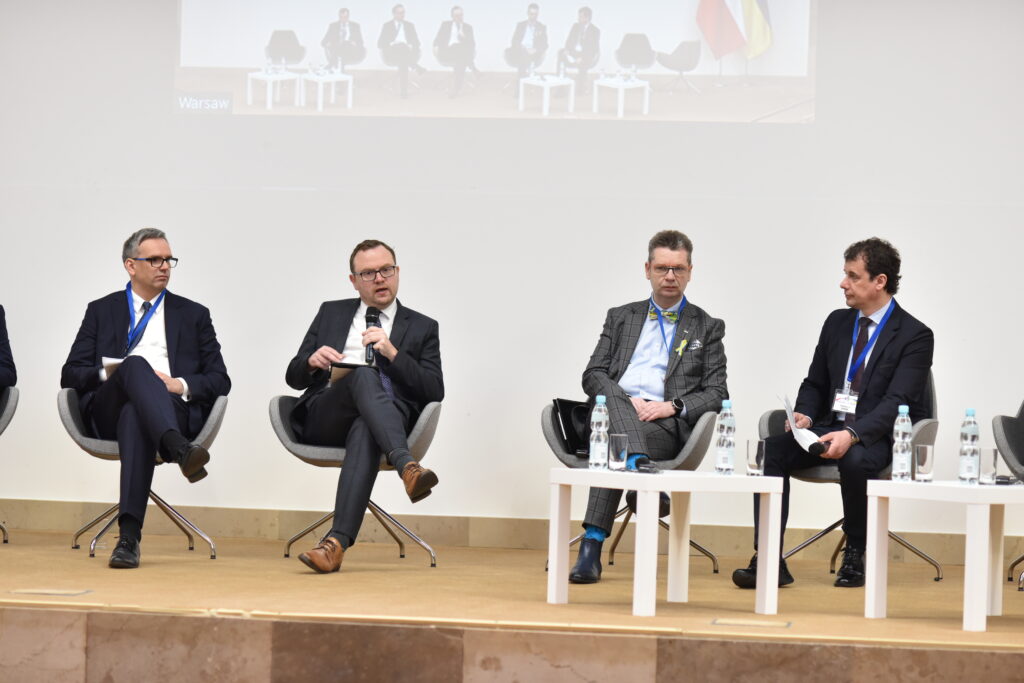
Mstyslav Banik, Head of Electronic Services Development at the Ministry of Digital Transformation of Ukraine, thanked Polish customs officers and state administrative bodies for their readiness to receive Ukrainian citizens who had digital versions of their documents in “Diya” instead of without paper documents. The Ministry of Finance is currently actively working on the organization of social assistance to Ukrainians through the “Diya” app, as well as on the regulation of all regulatory and technical issues to establish these processes. According to the speaker, the final decisions on settling the issues of our citizens’ use of “Diya” in European countries are already being prepared.
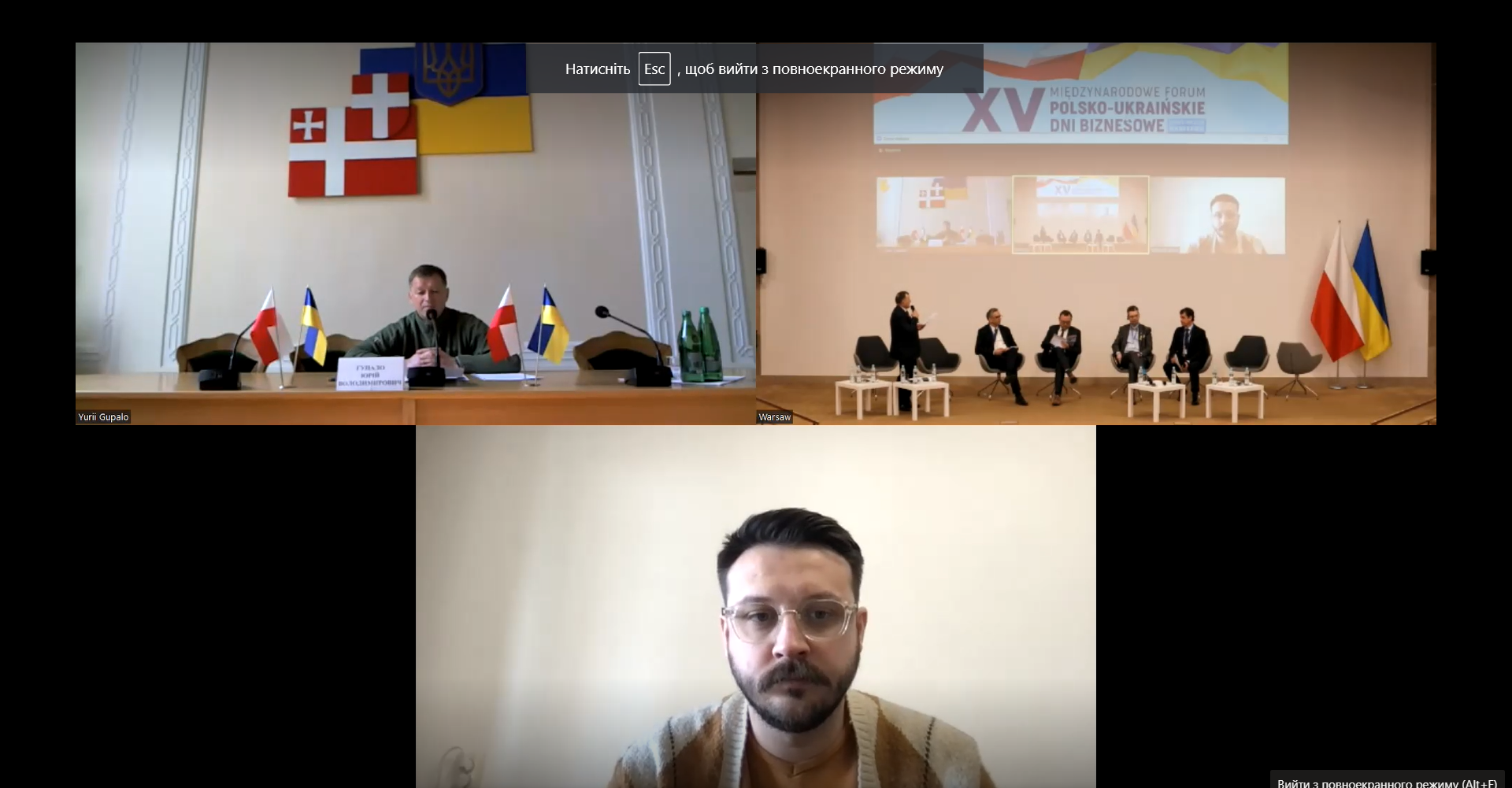
According to “UkraineInvest” Deputy Executive Director for Investment Attraction and Support Yevhenii Shakotko, the war began at a time of dynamic growth in the Ukrainian economy and record investment, including a high percentage of Polish investment. Mr. Shakotko noted that numerous government and parliamentary initiatives, including projects to support business relocation, in the provision of interest-free loans with state guarantees and in the tax sphere, support business and help recover from shock. UkraineInvest’s activities are aimed at establishing communication between investors and the state. The organization is interested in involving of the Polish experience.
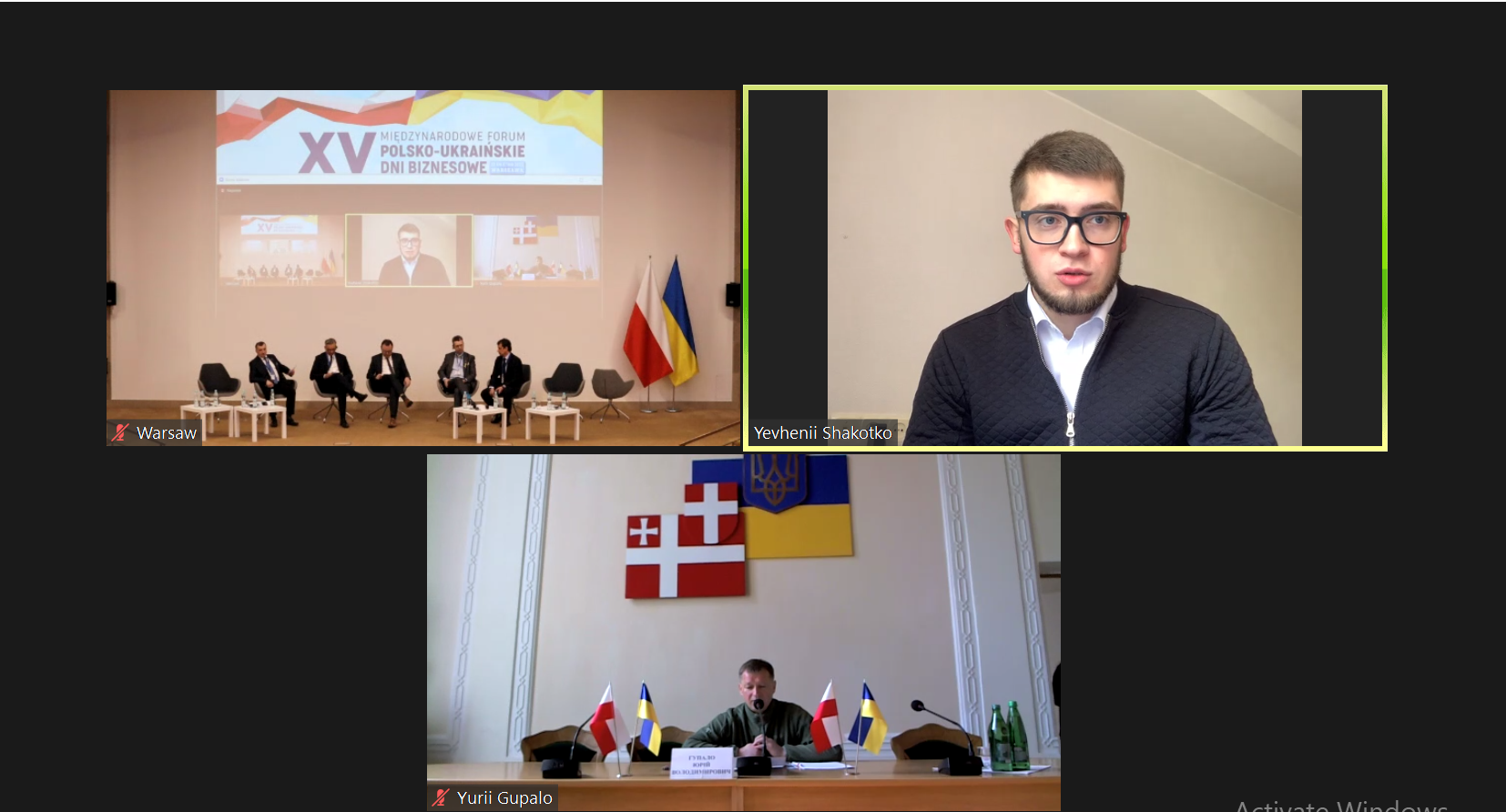
Olga Magaletska, Head of the Office of the National Investment Council, also noted the high level of Polish investment in Ukraine. According to the speaker, Poland has become a hub for transporting humanitarian aid to Ukraine, simplifying all logistics processes. Ms. Magaletska stressed that currently the activities of state bodies are aimed at resolving economic problems, in particular the relocation of businesses from the regions where hostilities are taking place, simplifying conditions and procedures for rapid adjustment and deregulation of many procedures, and developing mechanisms for adjustment of investment climate in the postwar period.
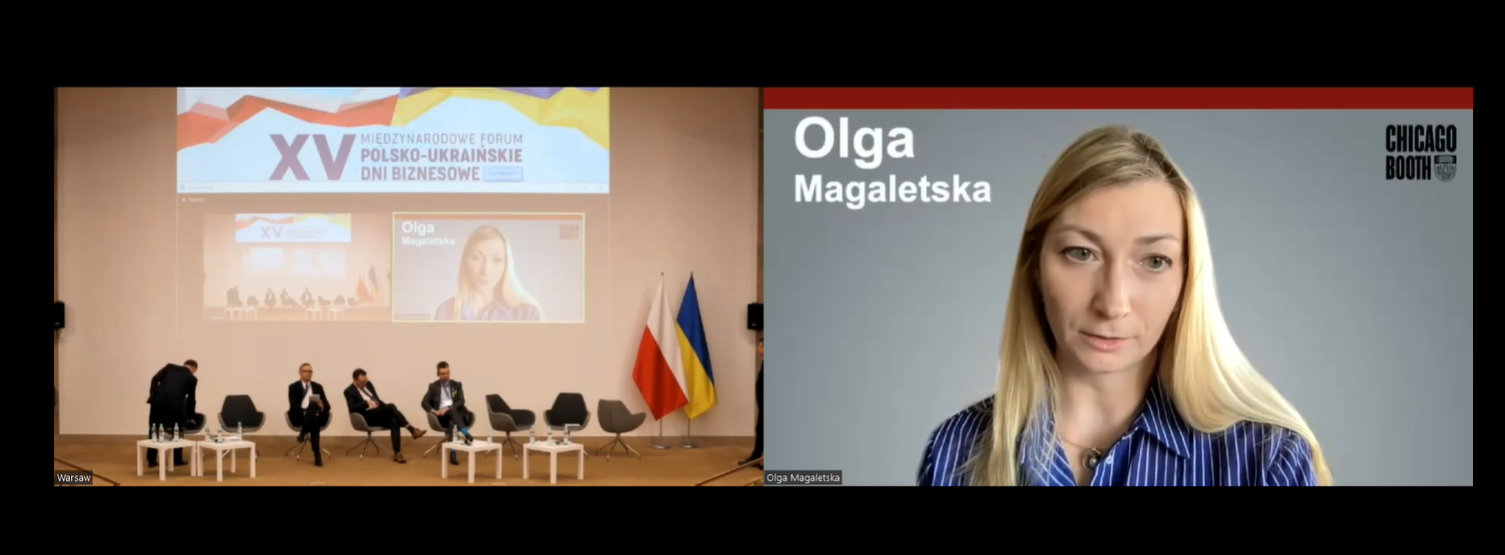
“Ukrainians are now fighting not only to protect their own borders, but also to protect the whole of Europe.” – said the chairman of the Entrepreneurship Council under the President of Poland, rector of the Warsaw School of Economics Piotr Wachowiak. According to the speaker, the infrastructure issue is one of the key factors in the context of humanitarian support of Ukraine and its future reconstruction. Mr. Vakhovyak stressed the need to provide financial support to Ukraine, in particular in terms of regulating the issue of external debt, support for small and medium enterprises.
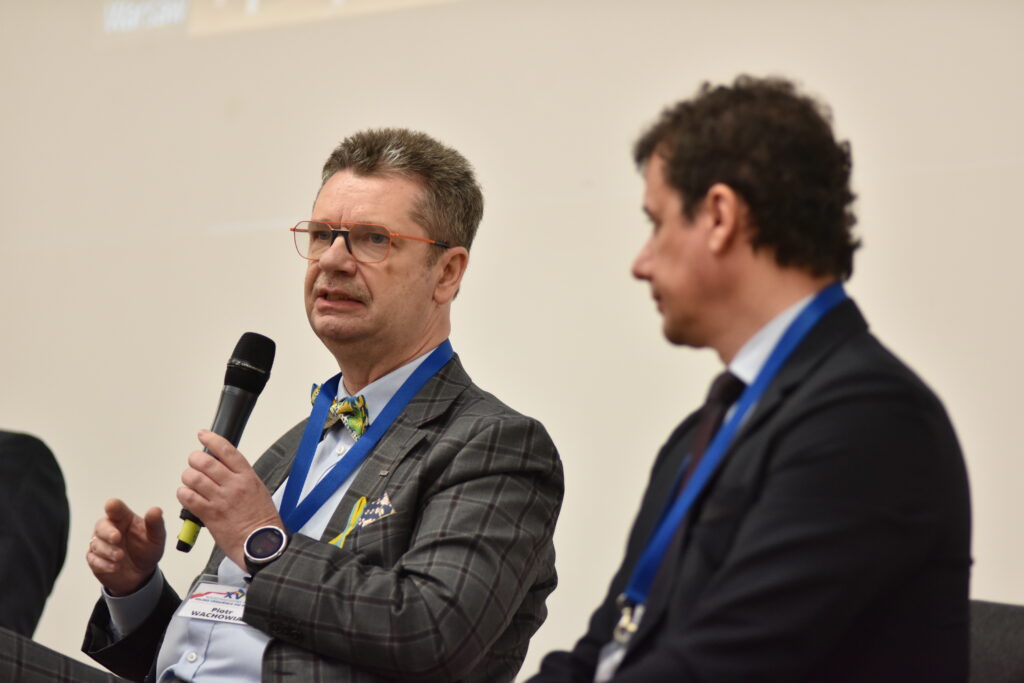
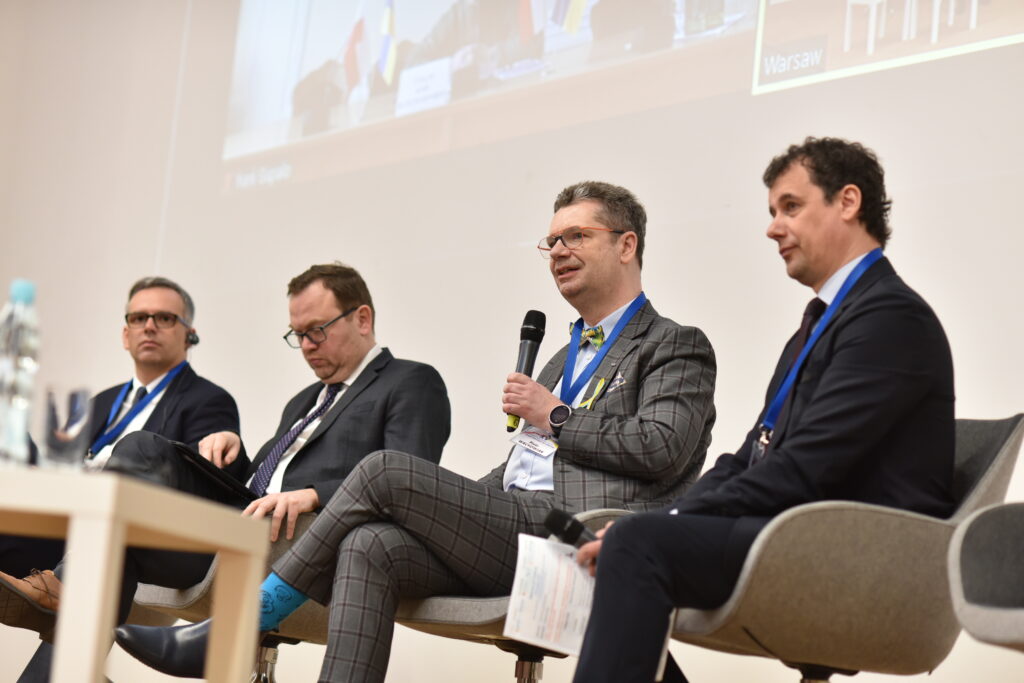
The head of the Volyn Regional Military Administration Yurii Gupalo began his speech by thanking neighboring Poland for the prompt provision of humanitarian aid to Ukraine, including targeted assistance of specific Ukrainian cities. The speaker noted that all logistics processes have been established promptly, local authorities are in control of the supply of humanitarian aid and the situation in the strategically and logistically important Volyn region.
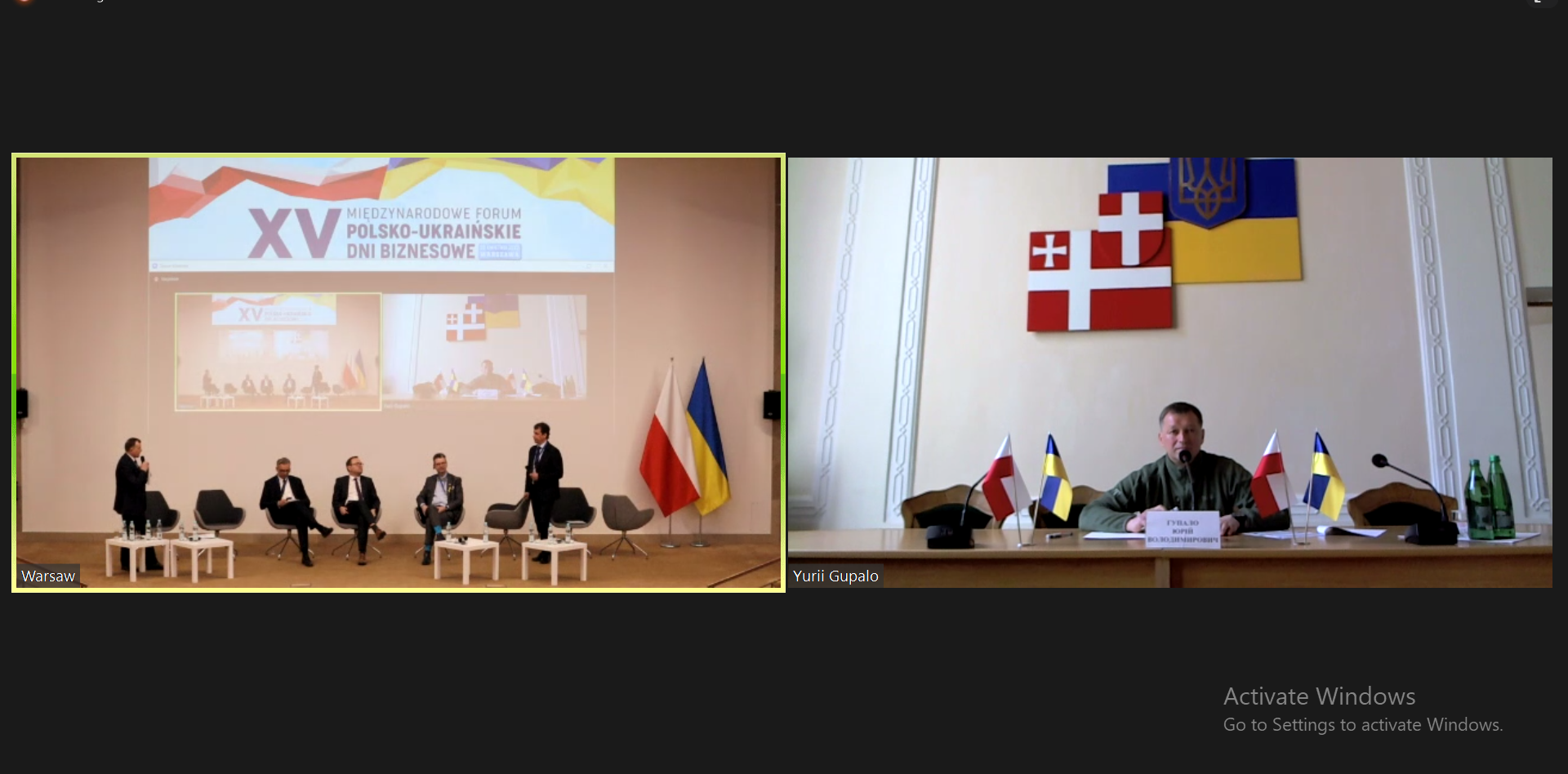
The first session of the forum ended with the signing of a Memorandum of Cooperation between PKP Cargo Connect, Volyn Regional Military Administration and the Association of Ukrainian Business in Poland. PKP Cargo Connect was represented by Maksym Golos, Chairman of the Board of PKP Cargo Connect. Yurii Gupalo, Head of VRMA, signed a memorandum on behalf of the Volyn Regional Military Administration online, and Yaroslav Romanchuk, Co-Chairman of the AUBP Council, took part in the signing from the side of Association.
The memorandum was signed to determine the basis for cooperation between the parties in connection with the armed aggression of the Russian Federation. Establishing support for Ukraine by providing free use of the railway terminal for receiving and shipping humanitarian aid and transporting it to Ukraine, coordination of activities between all volunteers wishing to provide assistance to the Armed Forces, Territorial Defense Forces and civil protection with government agencies, collection of humanitarian aid and its customs registration – the main tasks to be carried out within the signed memorandum.
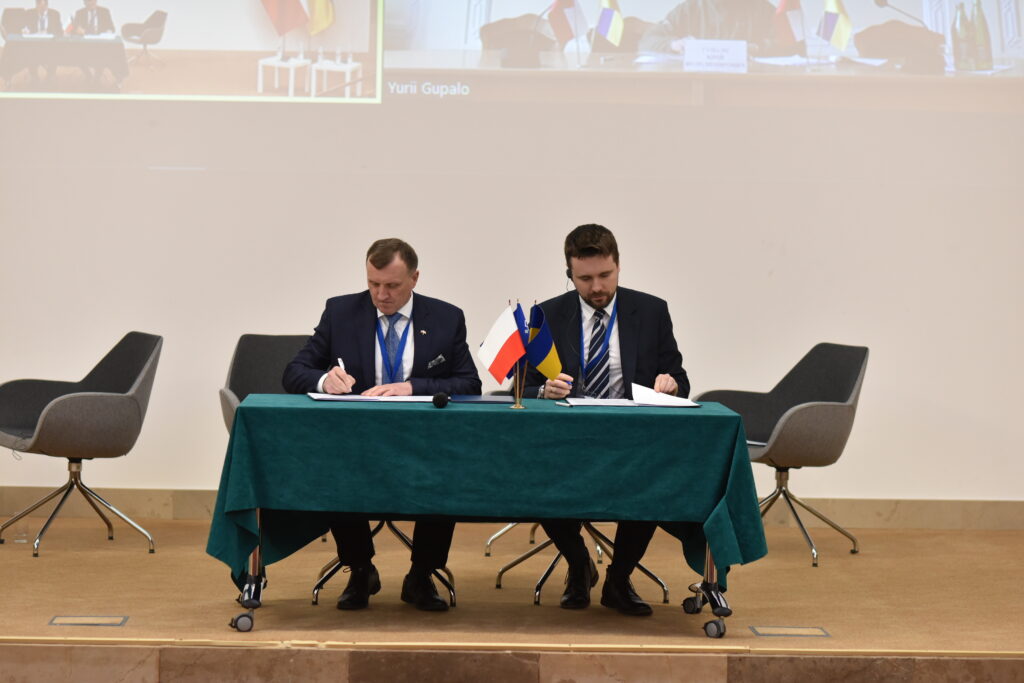
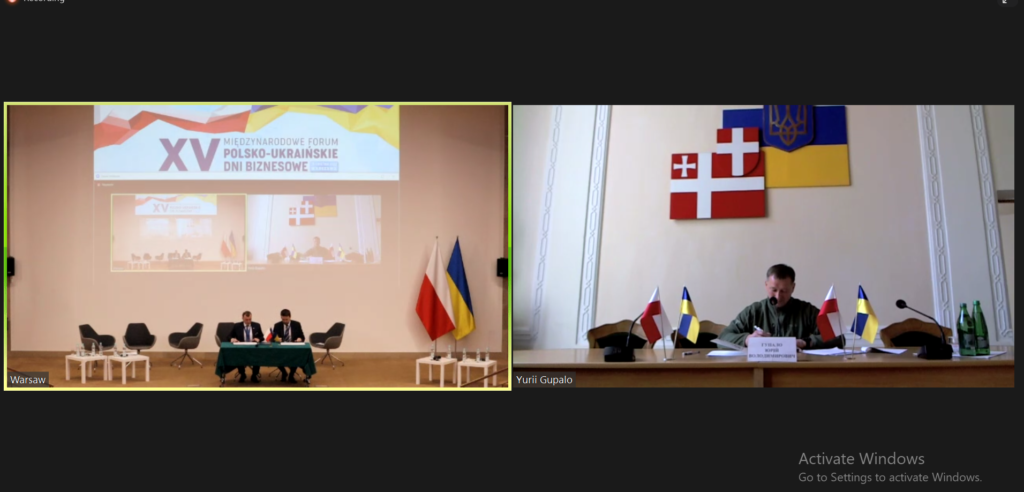
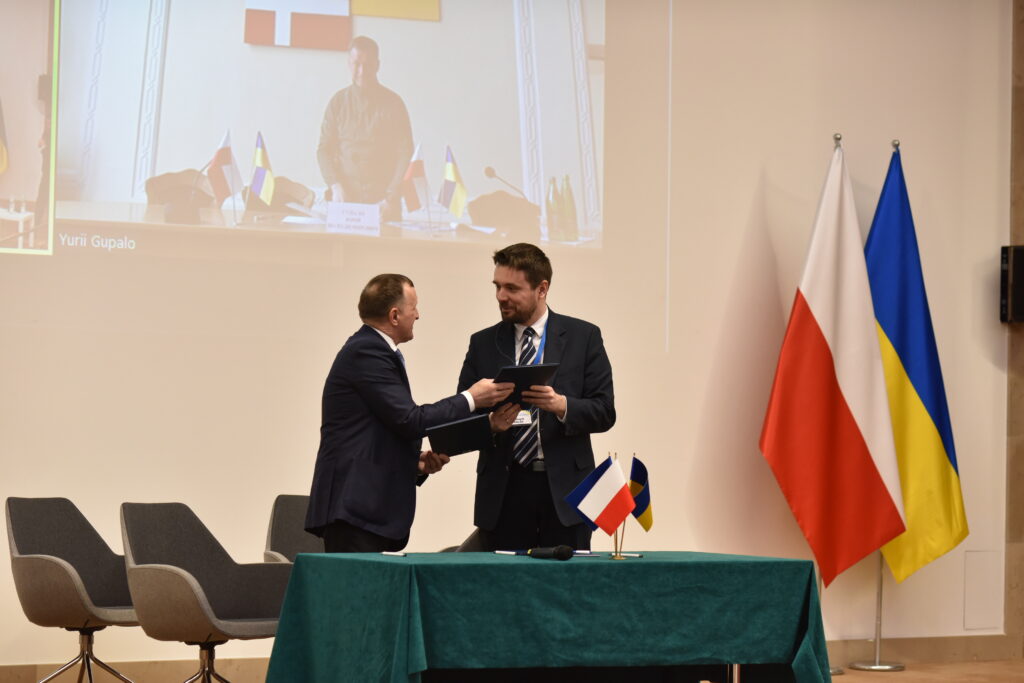
Panel discussion 2 “Major reconstruction: prospects for economic recovery of Ukraine. Challenges for industries: construction, energy, transport, public infrastructure, manufacturing, and agriculture” moderators Yaroslav Romanchuk and Ireneusz Derek started by presenting statistics on economic relations between Ukraine and Poland during last year.
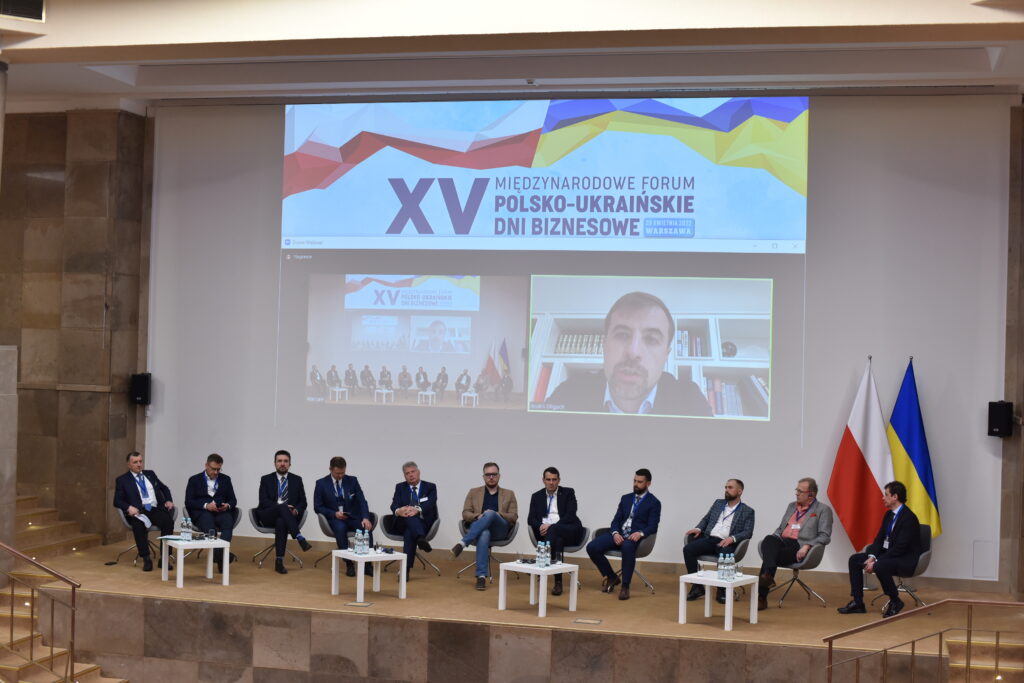
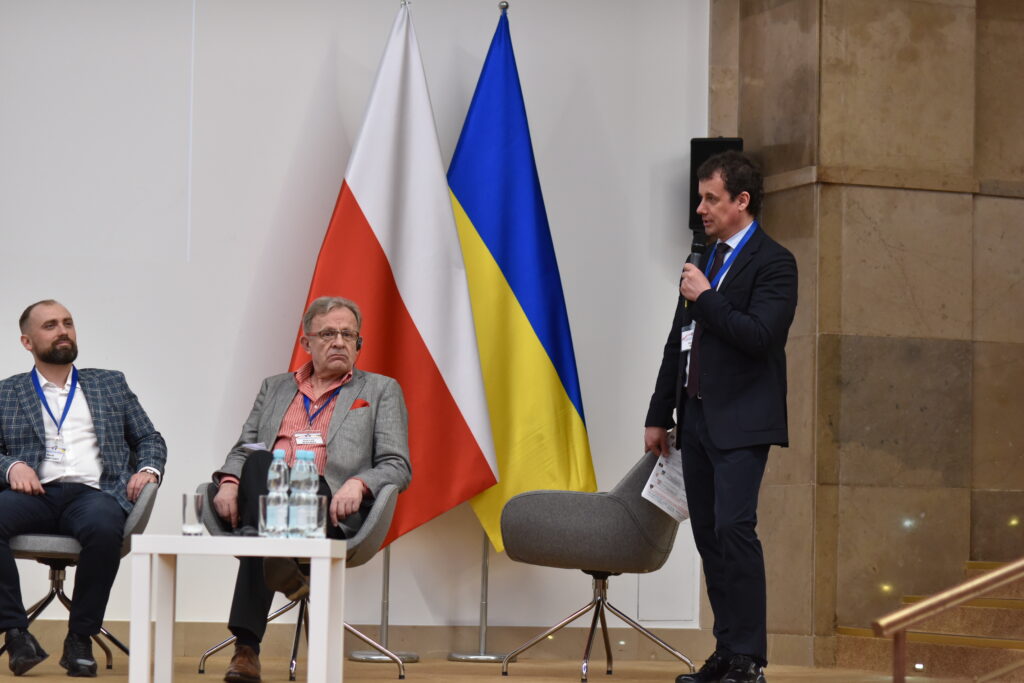
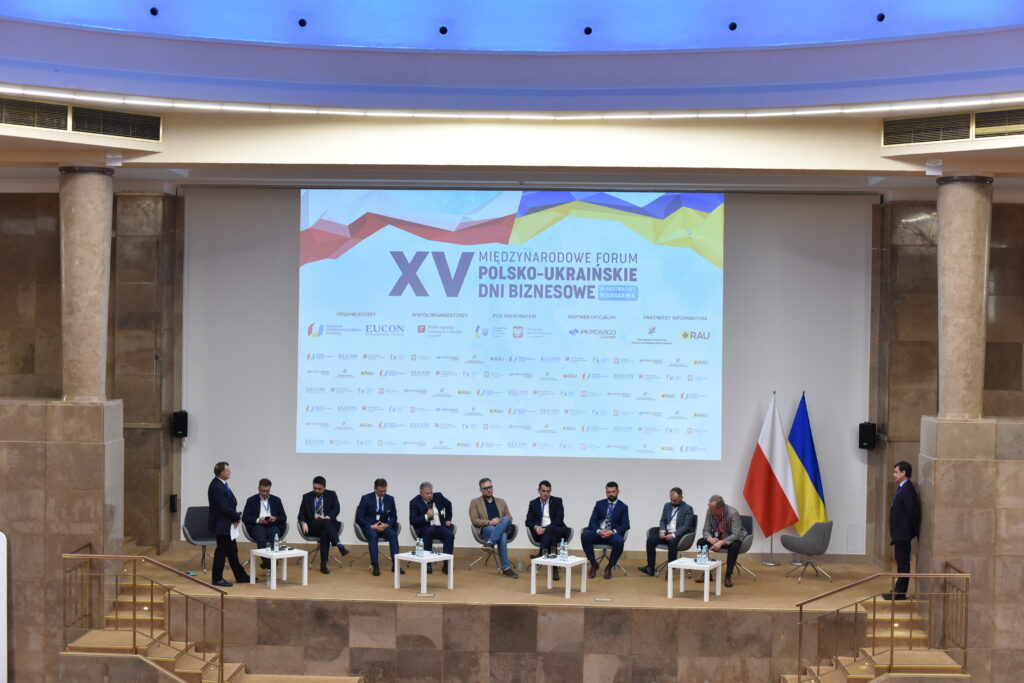
Counselor, Head of the Economic Affairs Department of the Embassy of Ukraine in the Republic of Poland Ihor Baranetskyi drew the attention of the audience to the tasks taken to increase the level of trade and past successes in cooperation between Poland and Ukraine. “Poland has become a logistics hub for the supply of humanitarian aid, goods and weapons to Ukraine, but the need to use all diplomatic and economic resources for effective cooperation and assistance still remains.” – said Mr. Baranetskyi.
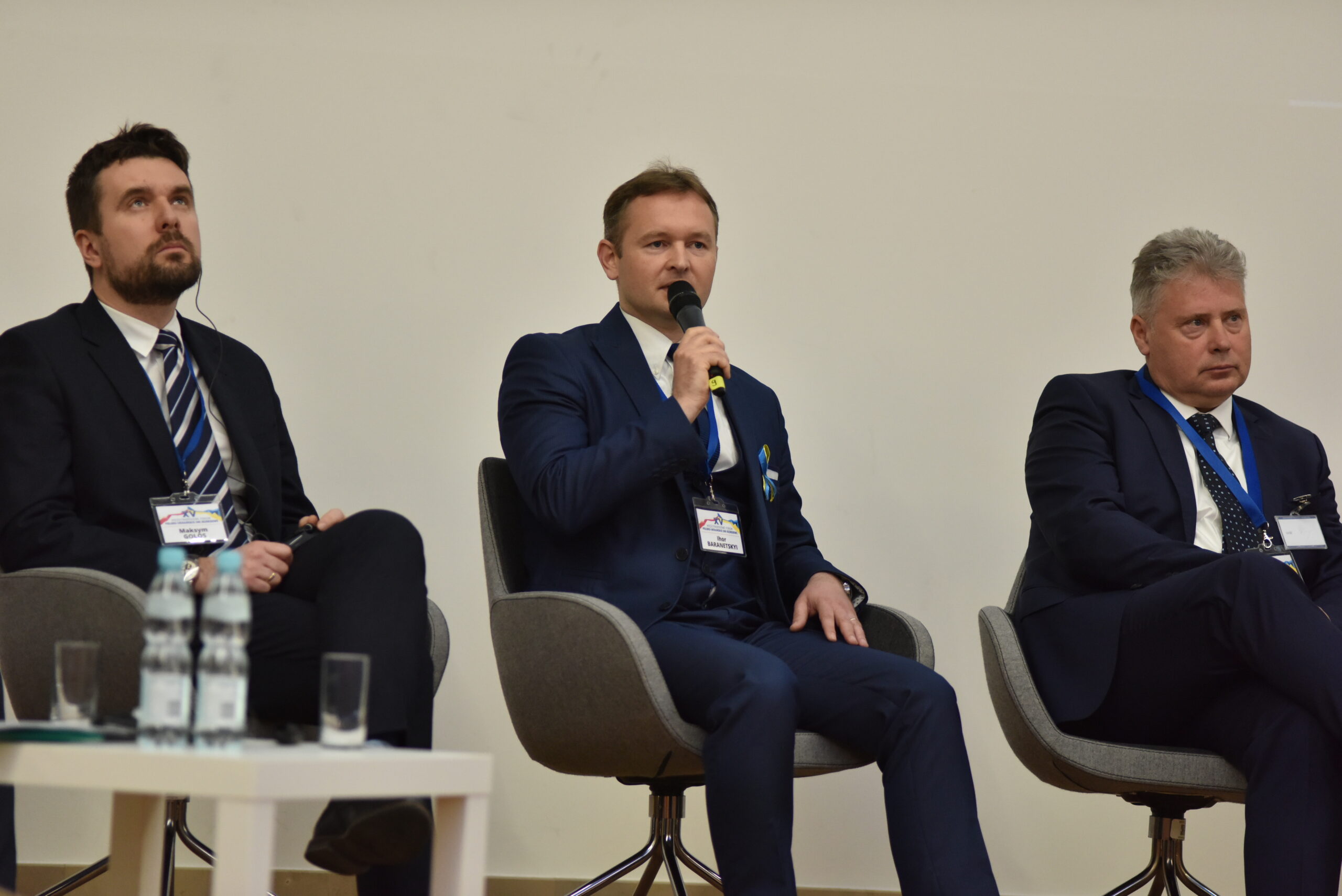
PKP Cargo Connect Chairman of the Board Maksym Golos outlined the participation and role of Polish railways in infrastructure connections between Ukraine and Poland, in particular in the context of using railway potential to transport products to Ukraine, the importance of understanding and planning the use of these factors for infrastructure development in the postwar period.
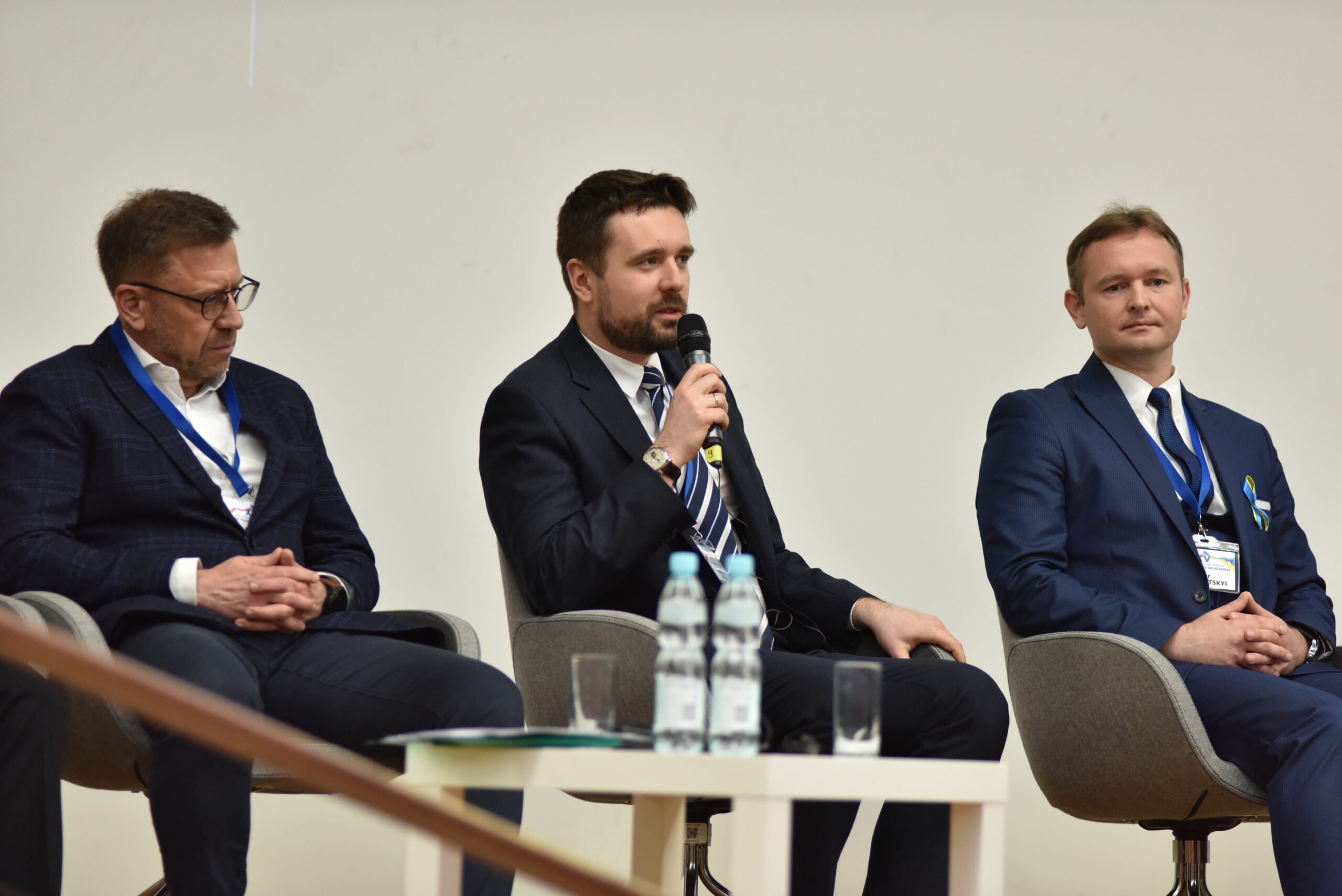
Piotr Ciarkowski, Chairman of the Board of the International Assosiation of Polish Entrepreneurs in Ukraine, focused on the importance of Russia’s economic blockade, the complexity of Ukraine’s post-war economic situation, and the need to attract investment and funds to rebuild Ukraine, including seized Russian assets.
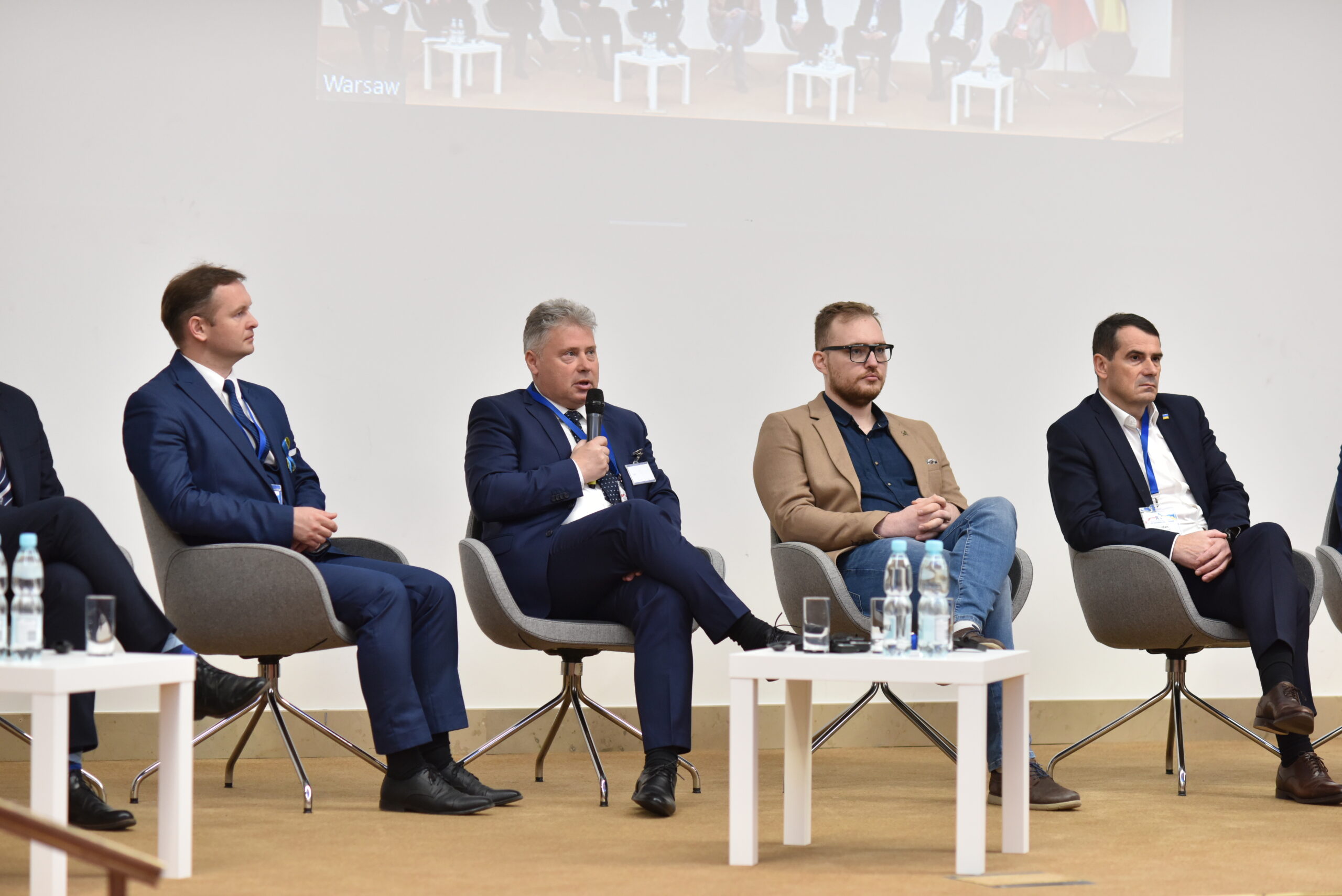
BOARD President Andrii Dligach spoke about the aspects of optimizing business relocation processes, use of Polish resources, the need for Polish investments, the urgent need for digitalization of all processes and the creation of infrastructure borders. Mr. Dligach stressed that the reconstruction of the food industry should be carried out at a new level with the involvement of FoodTech, in general, all industries should be restructured on a new technological basis.
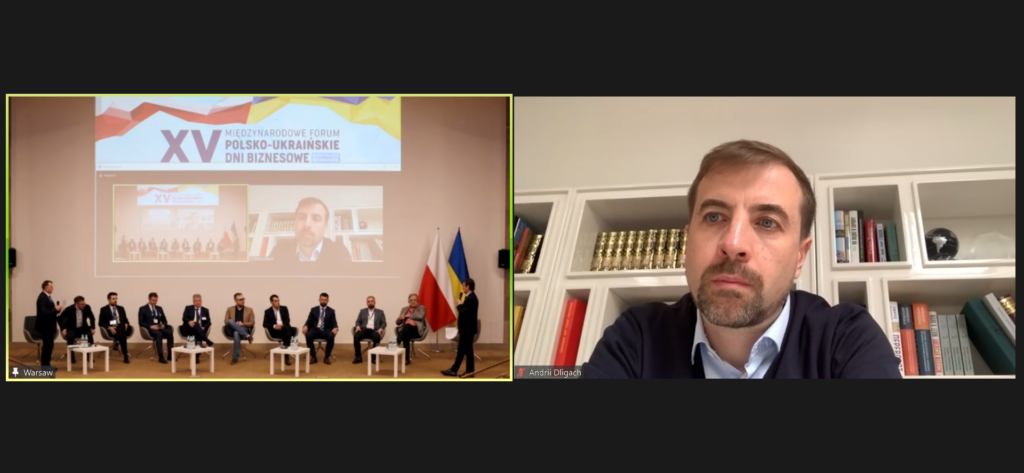
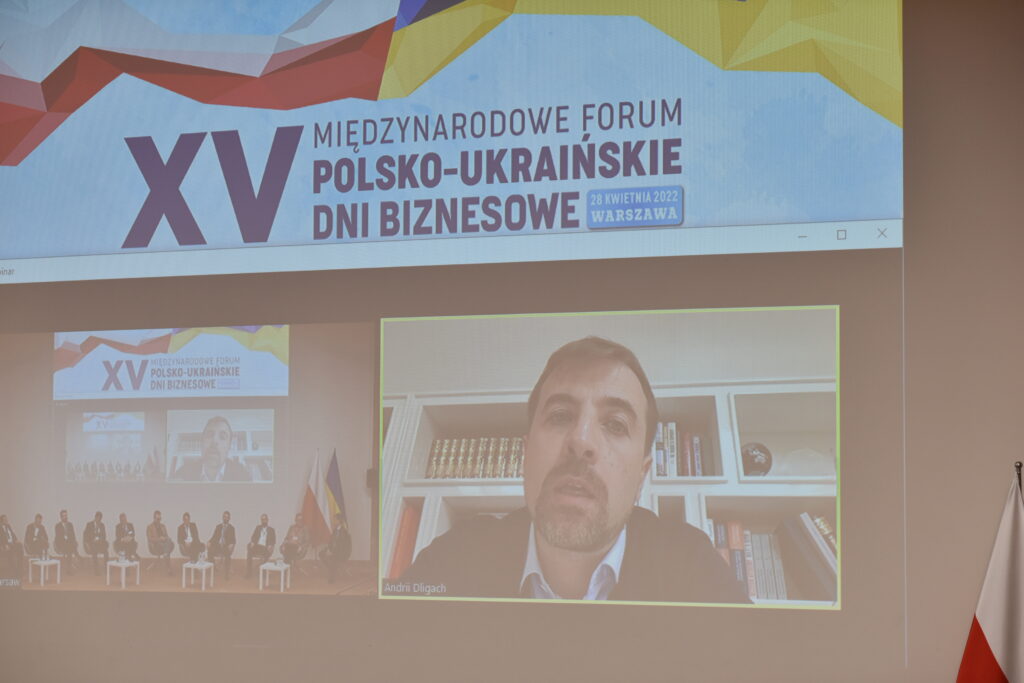
Co-owner of HD-GROUP and founder of GFS Boris Shestopalov outlined the current situation in the production in different regions of Ukraine, the current situation in the food industry, drew attention to problematic goods and problems with transportation and operation of new logistics chains for food transportation. Equally important, according to the speaker, is the adoption of the second part of the bill on industrial parks, which will make it possible to implement projects to create a cluster within the industrial park FoodTech.
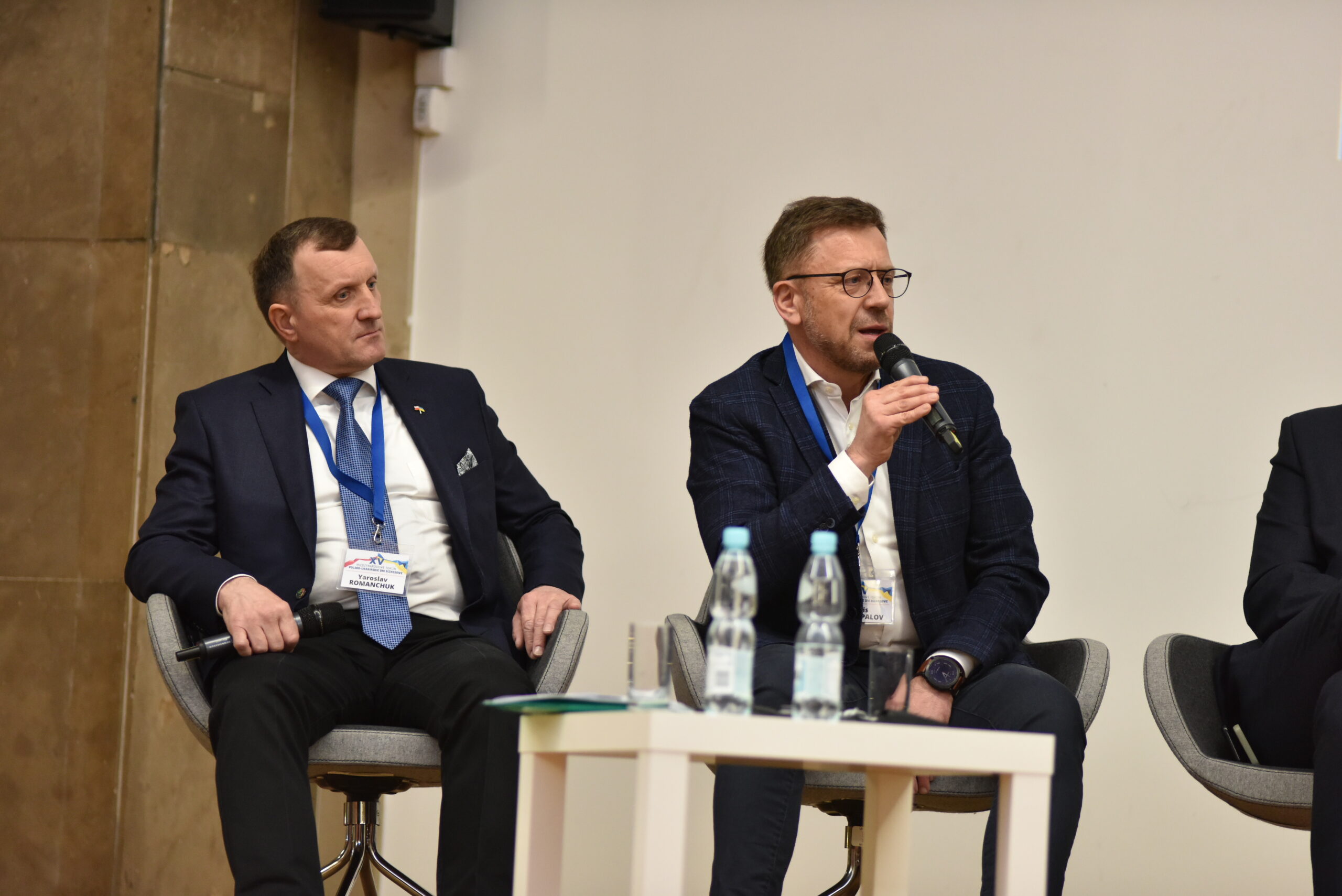
Acting Director for the Ukrainian Market of PKN ORLEN Representative Office in Ukraine Mateusz Domian noted that Ukraine demonstrates good results in the energy sector and effective management in the area of fuel transportation. Mr. Domian also voiced his views on actions to be taken to reduce energy impact and dependence on Russia and Belarus from the side of Ukraine and Europe. Poland is ready to provide energy assistance to Ukraine, in particular in the fuel transportation and the establishment of the necessary logistics.
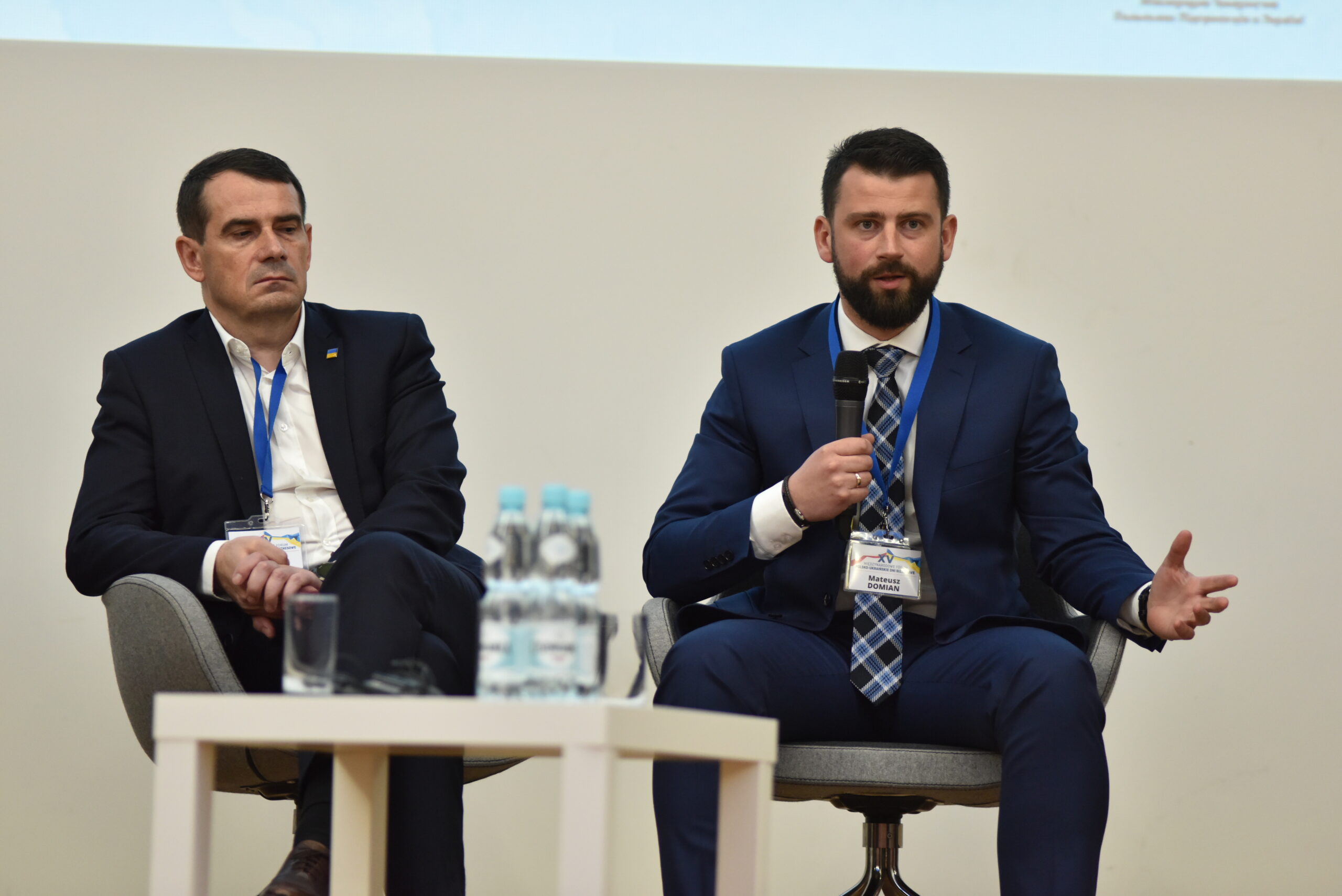
Pavlo Verzhbytskyi, Director of OPOS GROUP, spoke about the experience of providing company’s own warehouses and resources for the transportation of military humanitarian aid to Ukraine, including ammunition, equipment and transport. The speaker also expressed expectations about the implementation of a project to build a modern logistics center in Volyn. According to Mr. Verzhbytsky, it is now more appropriate to use small warehouses in bigger quantities to diversify risks, and consumers and producers will now focus on extending the shelf life of products. As for retail, in the future the task for business will be to reduce the distance between the retailer and the consumer, said the speaker.
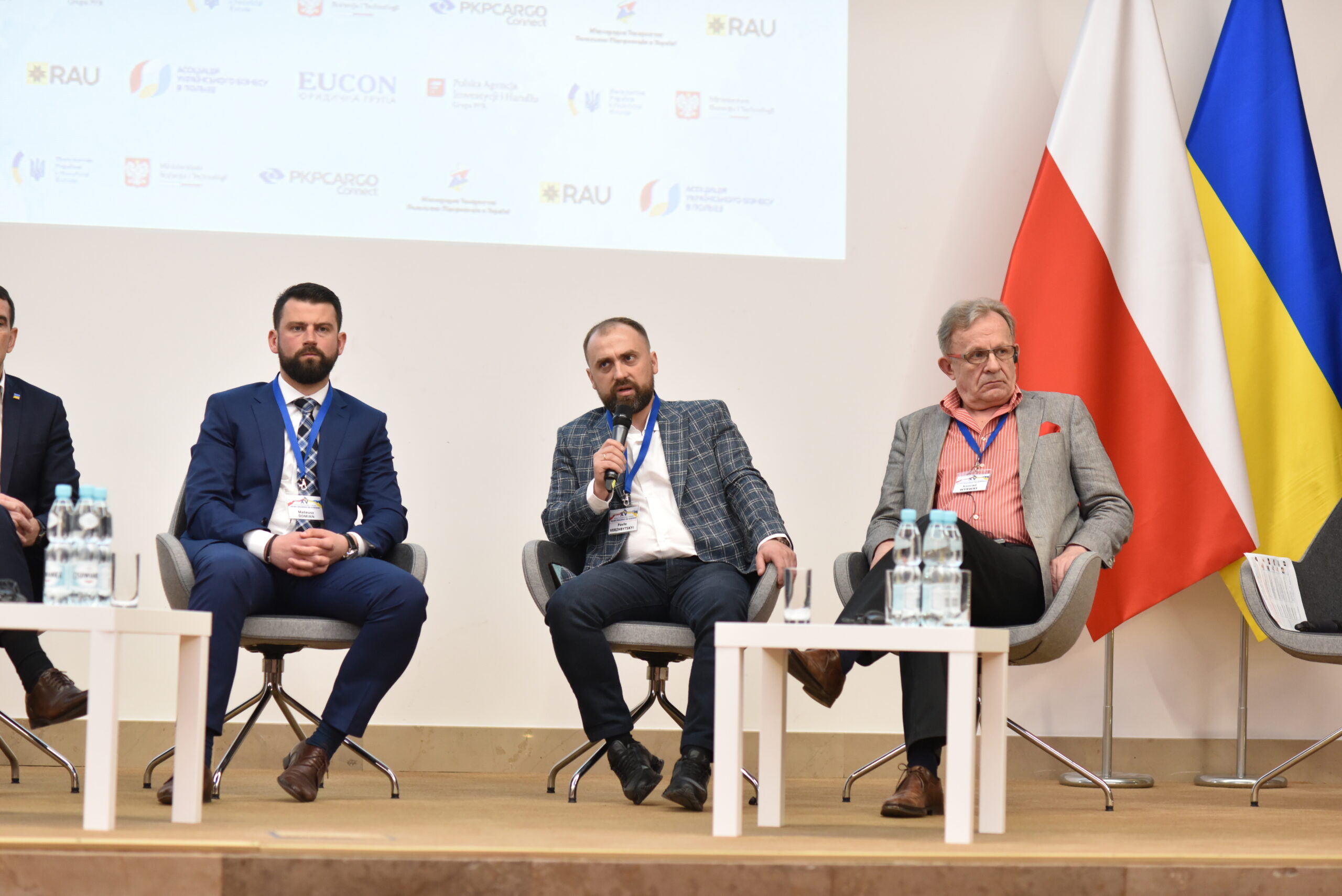
Chairman of the Board of Modern-Expo S.A. Bogdan Lukasik spoke about the peculiarities of the Ukrainian market, the provision of humanitarian aid to Ukraine and the search for new transport corridors and supply chains, the reputation of Ukrainian business and its partnership with Polish business, which should be built on trust.
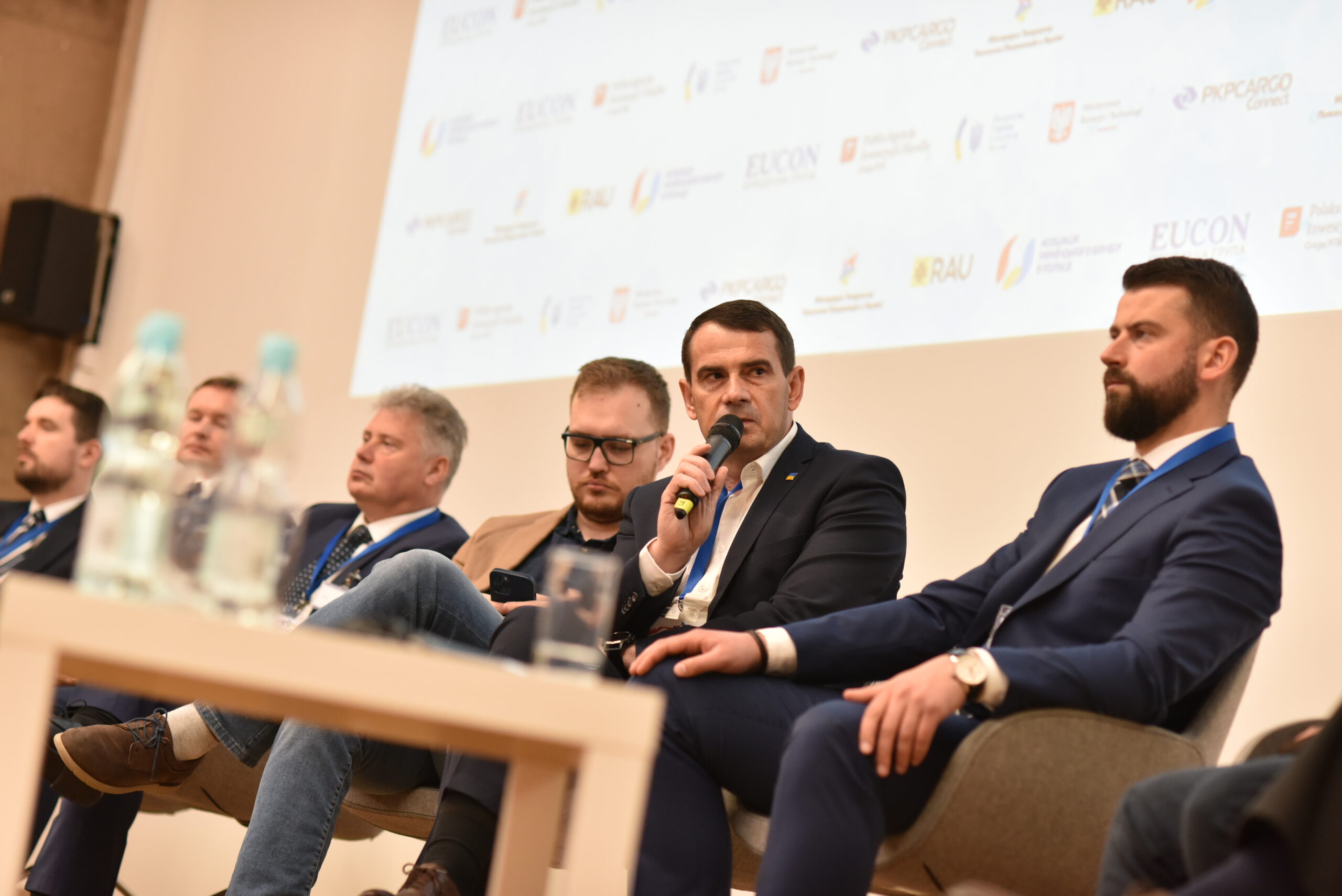
Wadym Melnyk, Chairman of the Board of DRONHUB Sp.z.o.o, spoke about the activities of small and medium-sized Ukrainian businesses in Poland, the importance of trust between Ukrainian and Polish businesses and the consolidation of efforts. The speaker also provided an important explanation of the technical peculiarities of the use of Chinese drones in the context of latent risks and the importance of producing their own technical products.
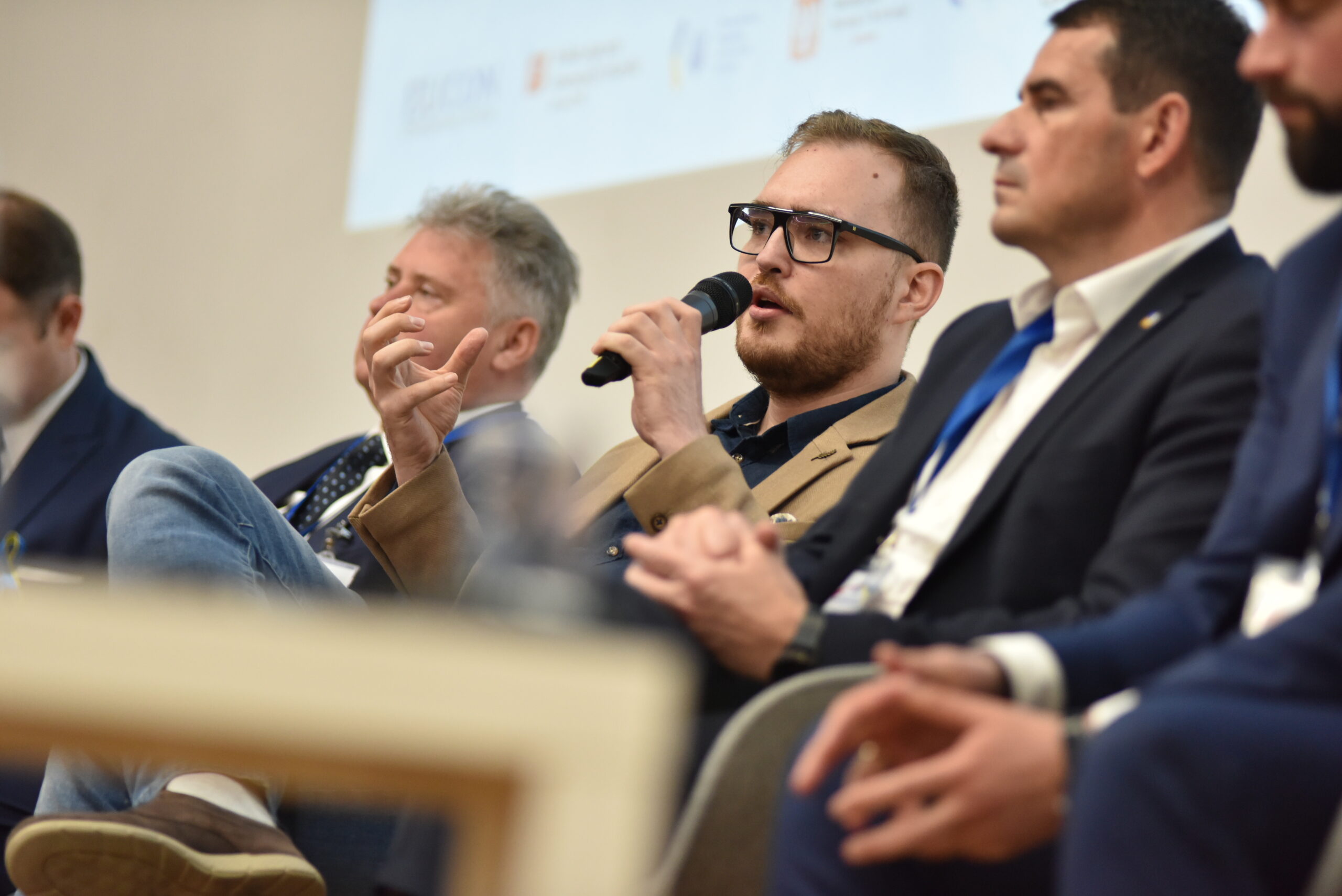
PZPB Director Konrad Wyrvas analyzed preliminary estimates of infrastructure losses and destruction of Ukrainian settlements, as well as the potential of Polish construction companies to be involved in rebuilding Ukraine. Mr. Virvas drew attention to the presence of Ukrainian skilled builders who have gained experience in working with modern construction technologies in Poland.
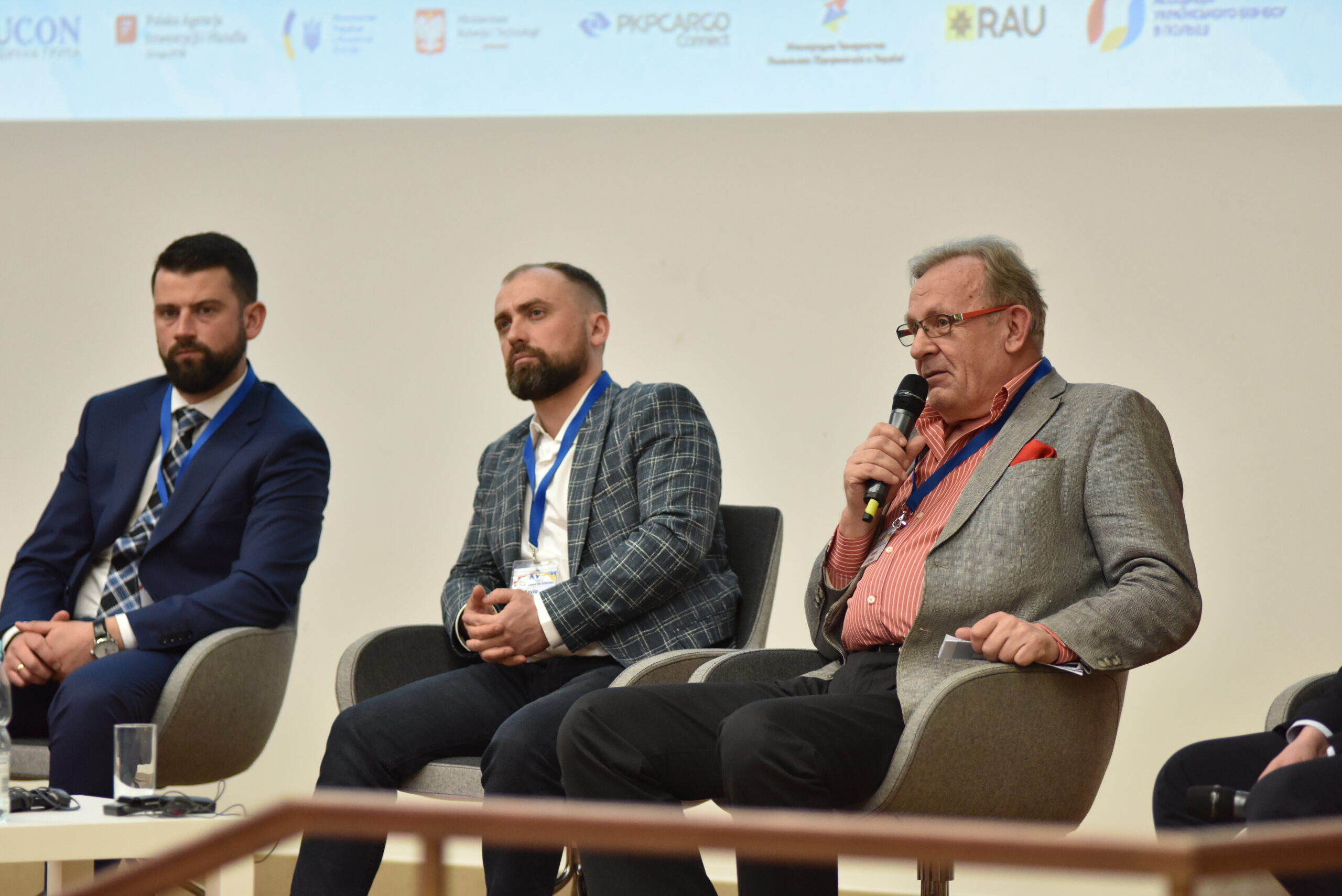
Panel discussion 3 “Polish and International Support Programs for Ukraine” was moderated by Karol Kubica, Head of the Foreign Trade Bureau in Kyiv of the Polish Agency of Investment and Trade (PAIH). The moderator expressed his opinion on the diversity of financial support programs in Poland, as well as their growing importance in the context of current events.
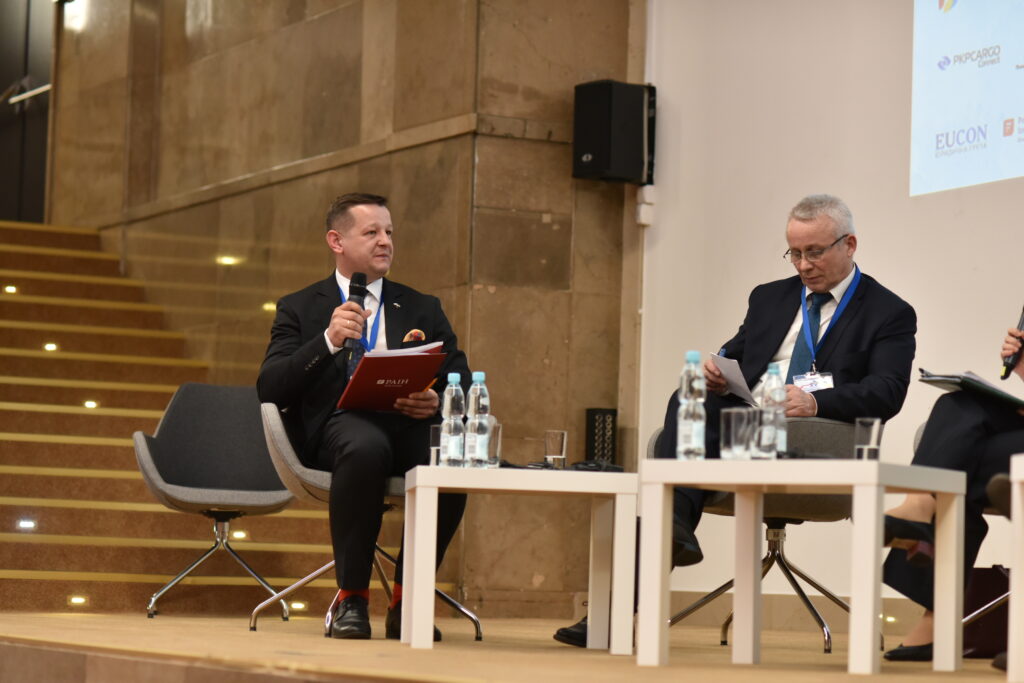
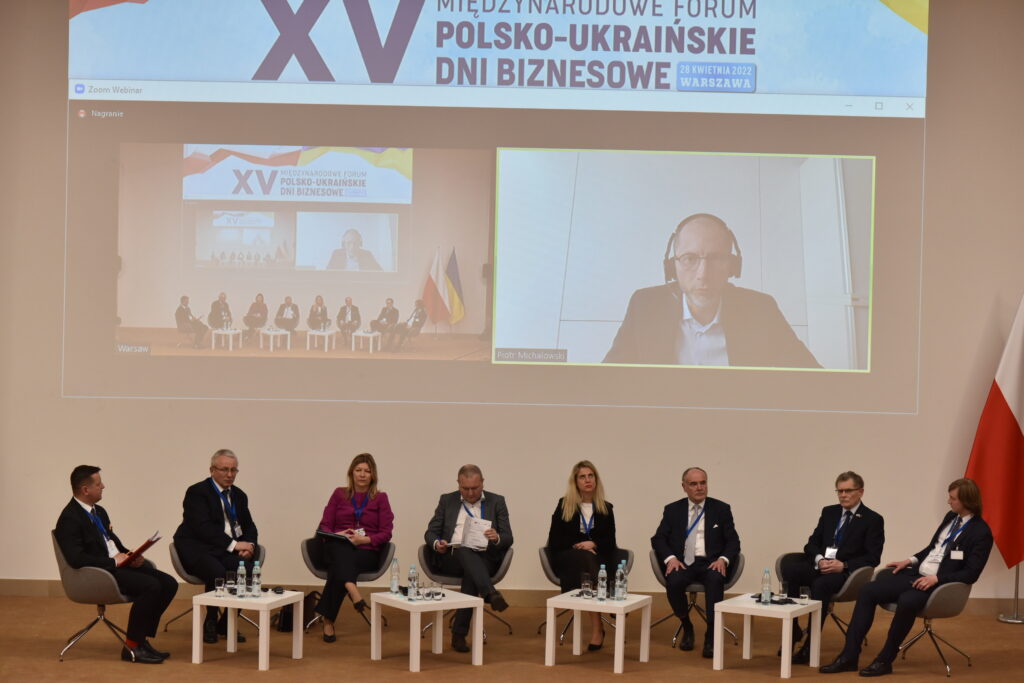
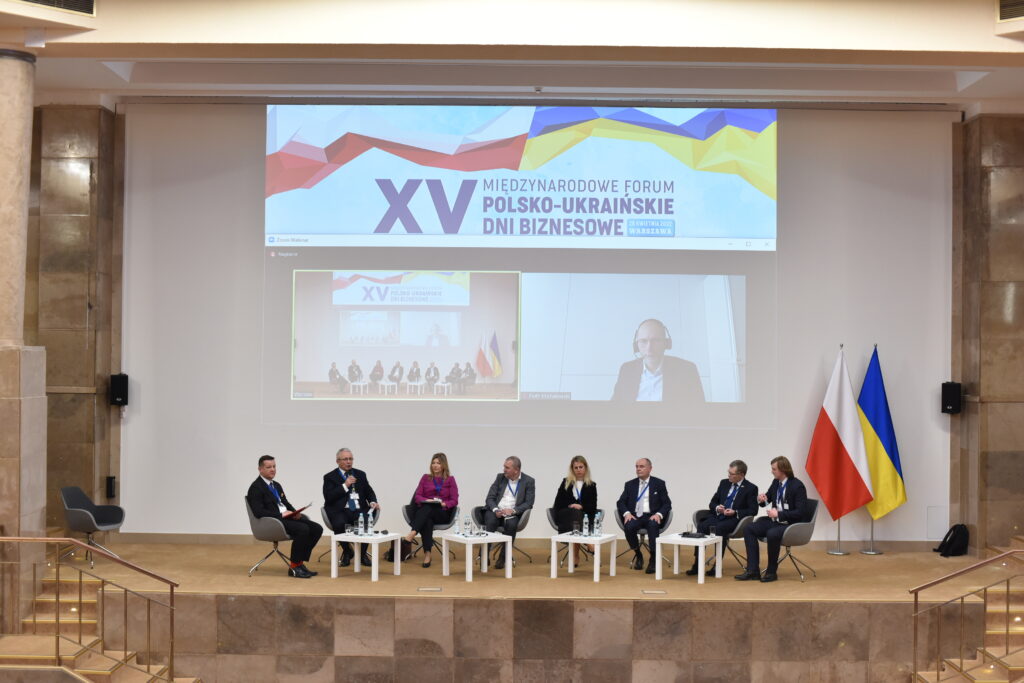
Vice-President of the Board of Polska Inwestycji i Handlu S.A. Zdzislaw Sokal focused on PAIH’s free coworking activities for Ukrainians in Warsaw and on the areas of assistance to entrepreneurs provided by an organization with strong ties to the Ukrainian business community. Mr. Sokal stressed that Ukraine needs strong military and economic support, including the creation of a reconstruction program such as the “Marshall Plan”.
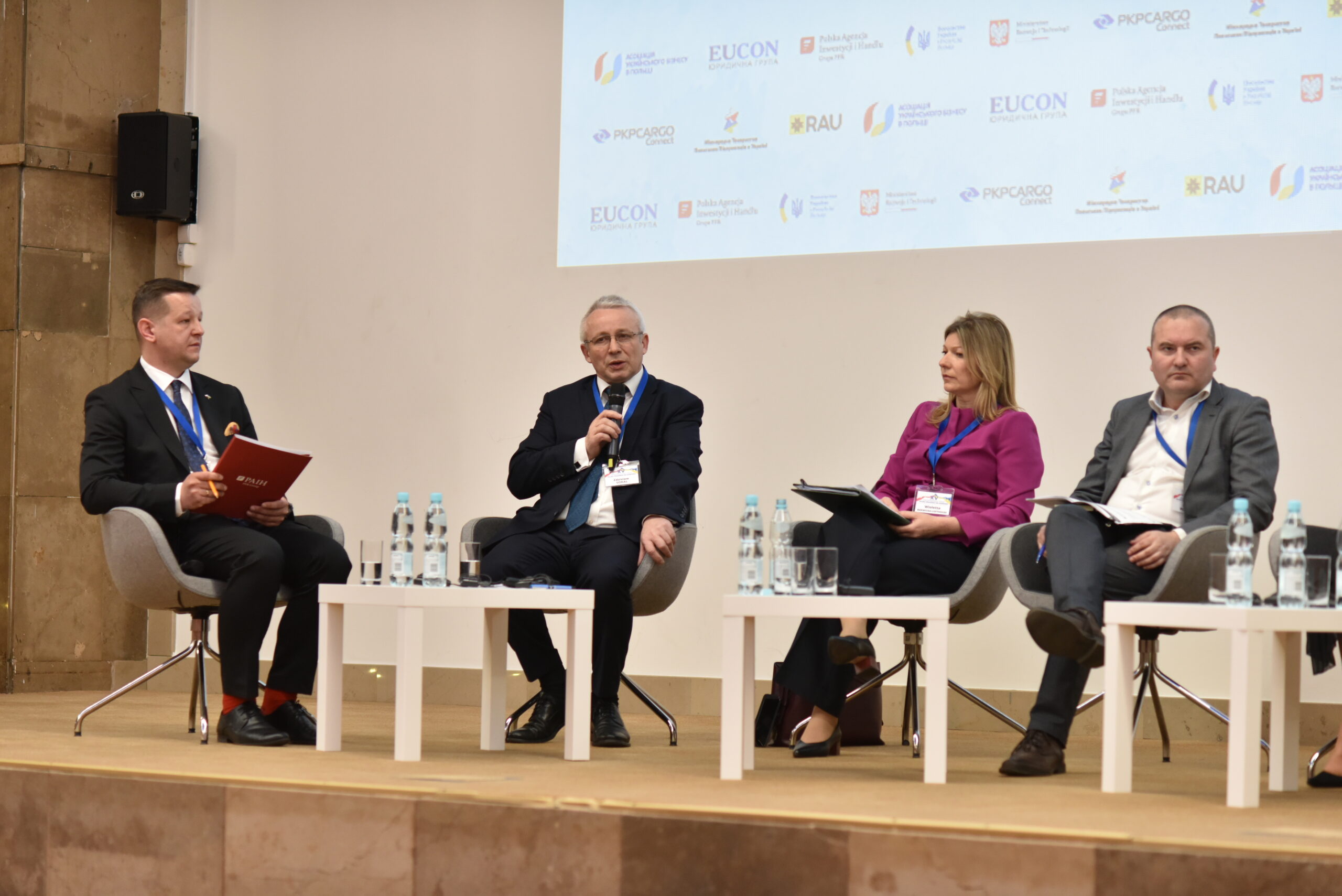
Deputy Chairman of the Board of the Bank of National Economy of Poland Wlodzimierz Kocon presented special programs from the bank to the forum participants, spoke about the organization of charity concerts and the peculiarities of the project to open a special single account in cooperation with the NBU to support the Ukrainian army.
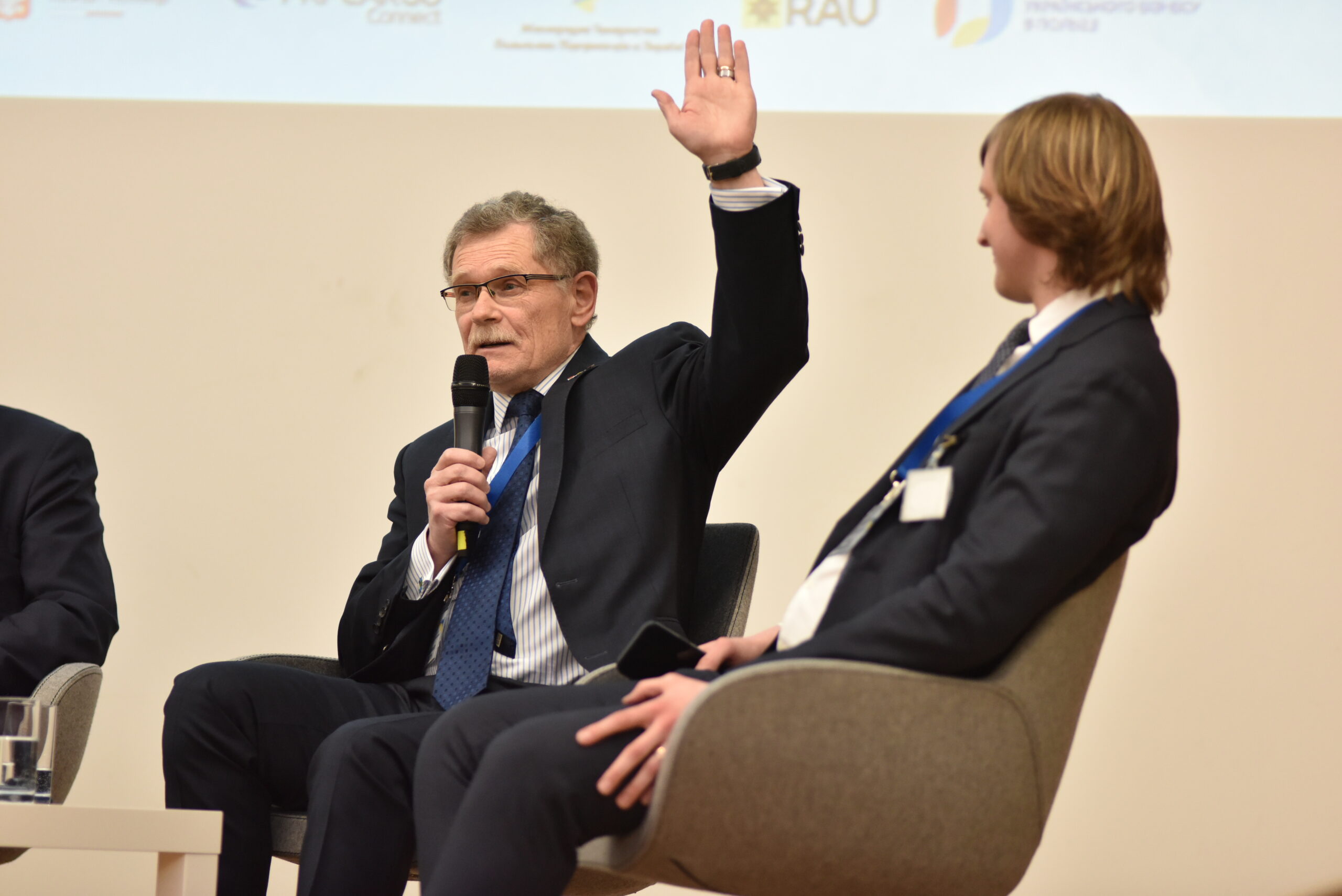
Member of the Board of Directors, Executive Director of the European Bank for Reconstruction and Development Poland, Bulgaria and Albania Wioletta Barwitcka-Lofthouse spoke about assistance programs for small and medium enterprises, noting that Ukraine has long been among the EBRD’s top 5 partner countries.
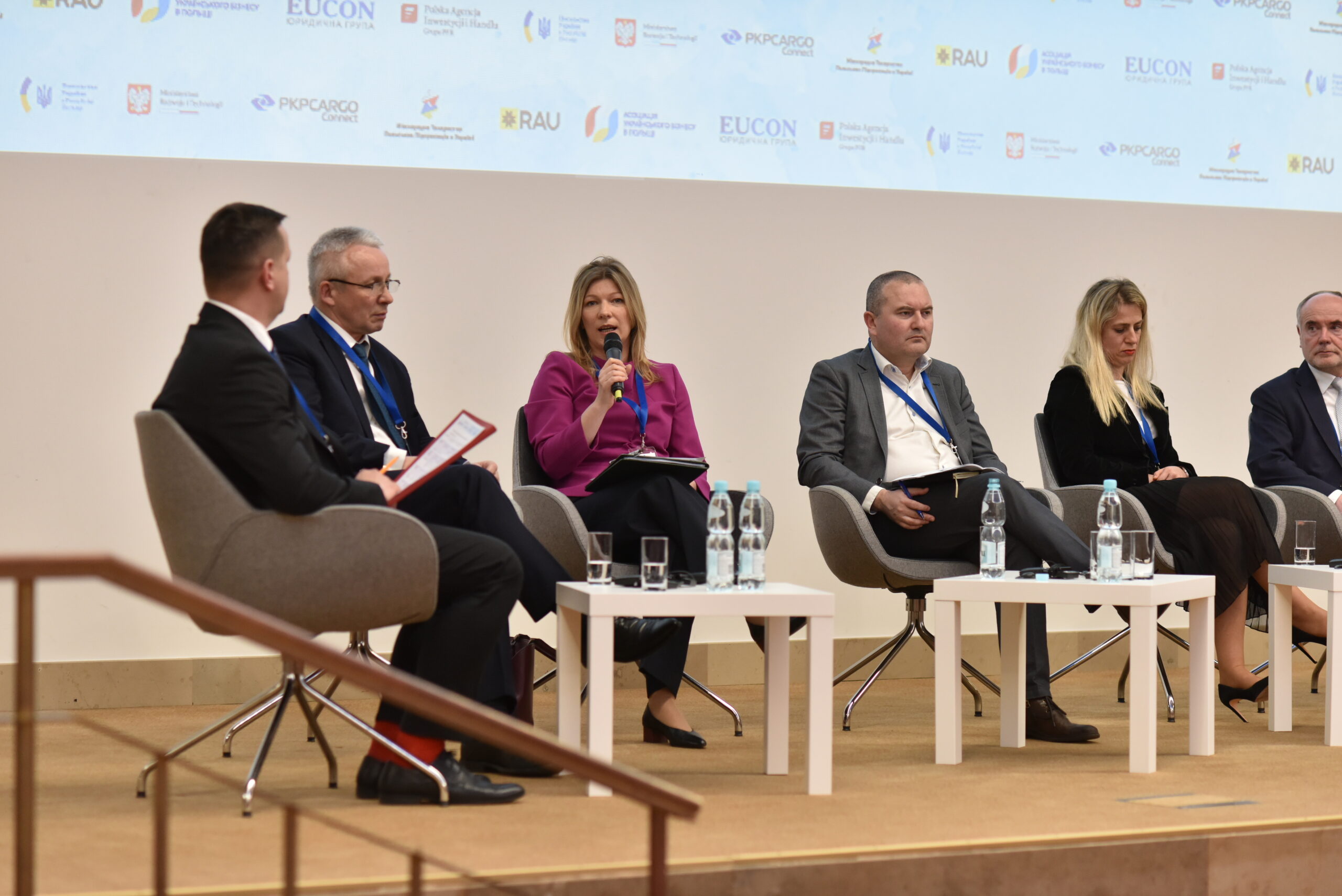
Piotr Michalowski, Senior Specialist in Public Sector Lending in Poland and the Baltic States of the European Investment Bank, spoke about financing small projects, the loan system, and the importance of focusing on long-term cooperation. “The main thing is to listen to the needs of business, so the bank is open to new projects, in particular to support Ukrainian business.” – the speaker emphasized.
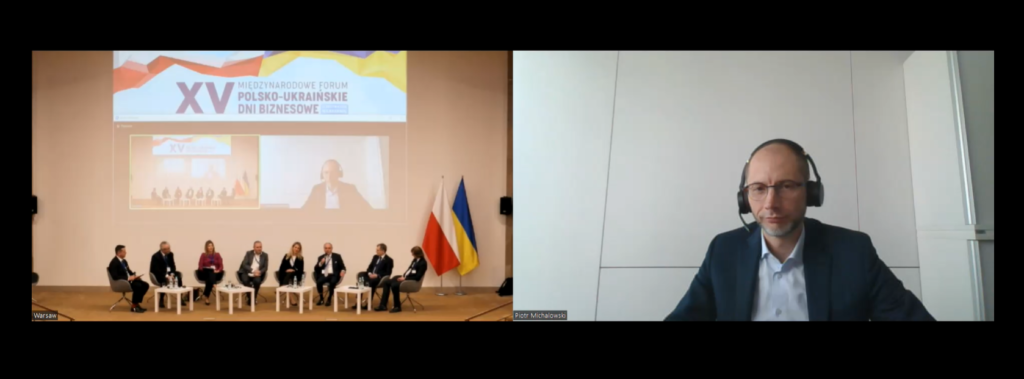
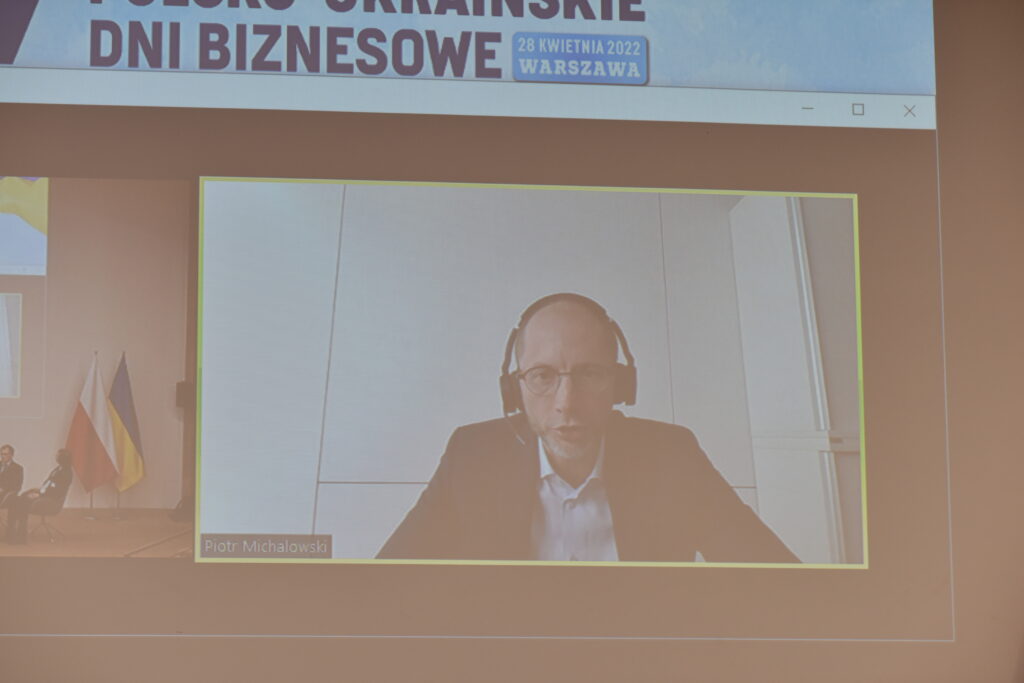
Chairman of the Board KREDOBANK S.A. Jacek Jerzy Szugajew told the audience about the work of the bank’s branches in Ukraine (operating not in the full capacity, but all clients are served), normal operating despite the current restrictions on currency circulation, compliance with all requirements of the central bank and the advantages of the central Ukrainian office of Kredobank in Lviv.
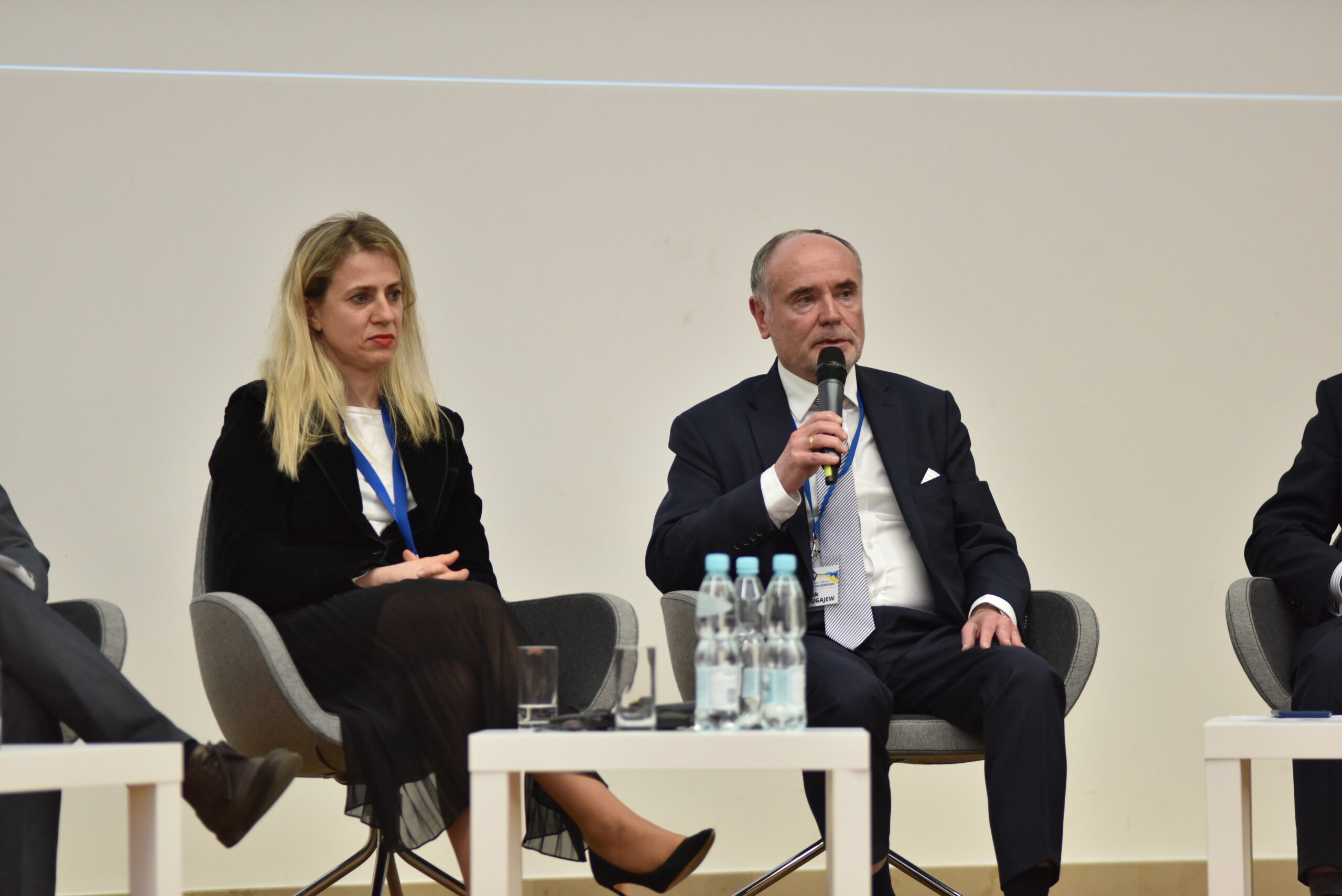
Luiza Bednarowska-Kopysc, Director of the Export Credit Insurance Corporation’s Product Development Department, noted that the Department is working on a new insurance project to protect finances, and also focuses on aspects of risk management in the markets, providing insurance in Ukraine, emphasizing that the Corporation takes responsibility for part of the risks and reduced funding rates.
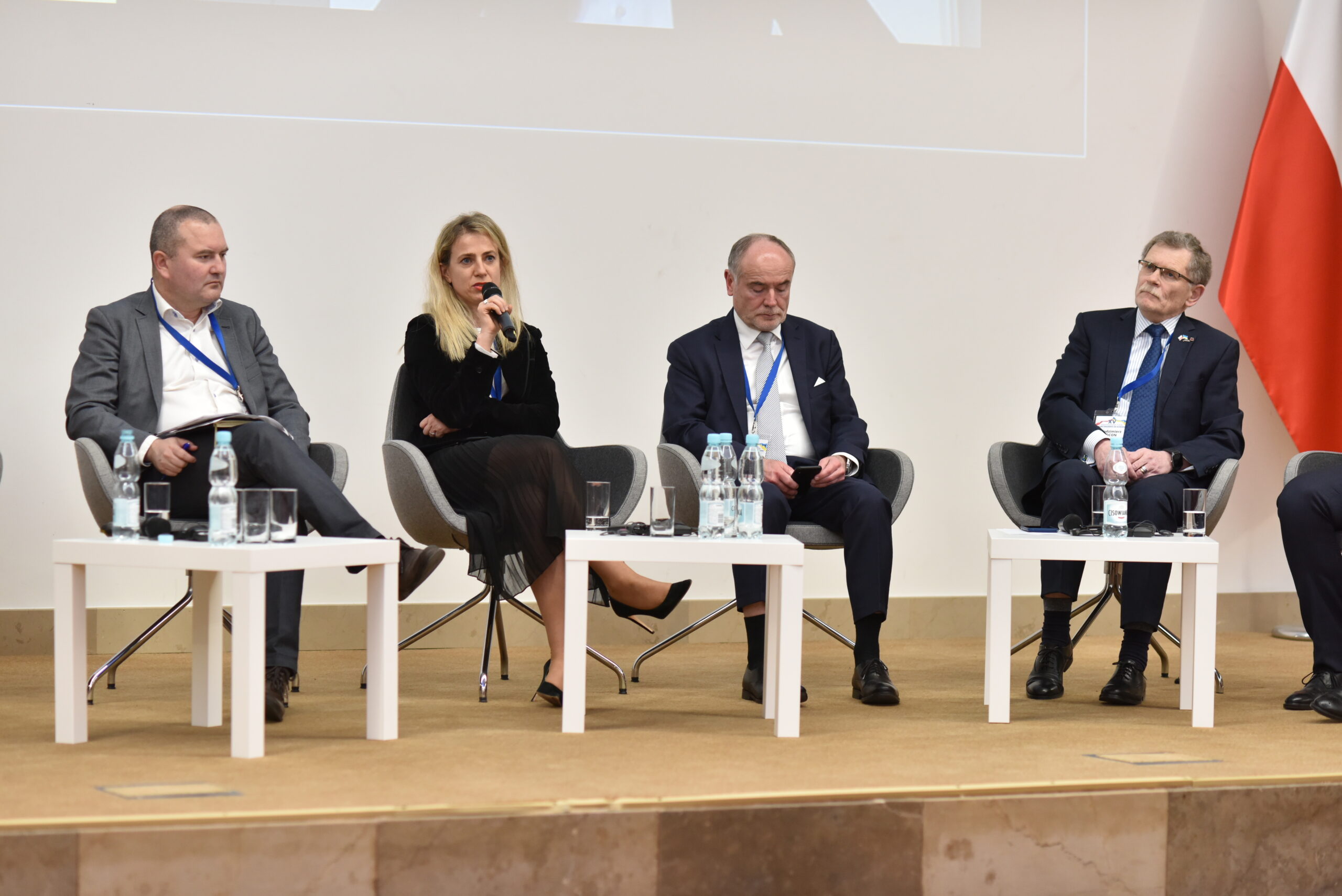
Director of the Entrepreneurship Support Department of the Polish Agency for Entrepreneurship Development Michał Polanski pointed out that the agency provides the same form of support to all companies, regardless of the country of residence of the final beneficiary, the only condition is the presence of a registered company in Poland. Mr. Polanski also spoke about the availability of regional programs for Ukrainians, in particular in the eastern regions of Poland bordering Ukraine, and the support of Ukrainian business in finding business partners in the EU.
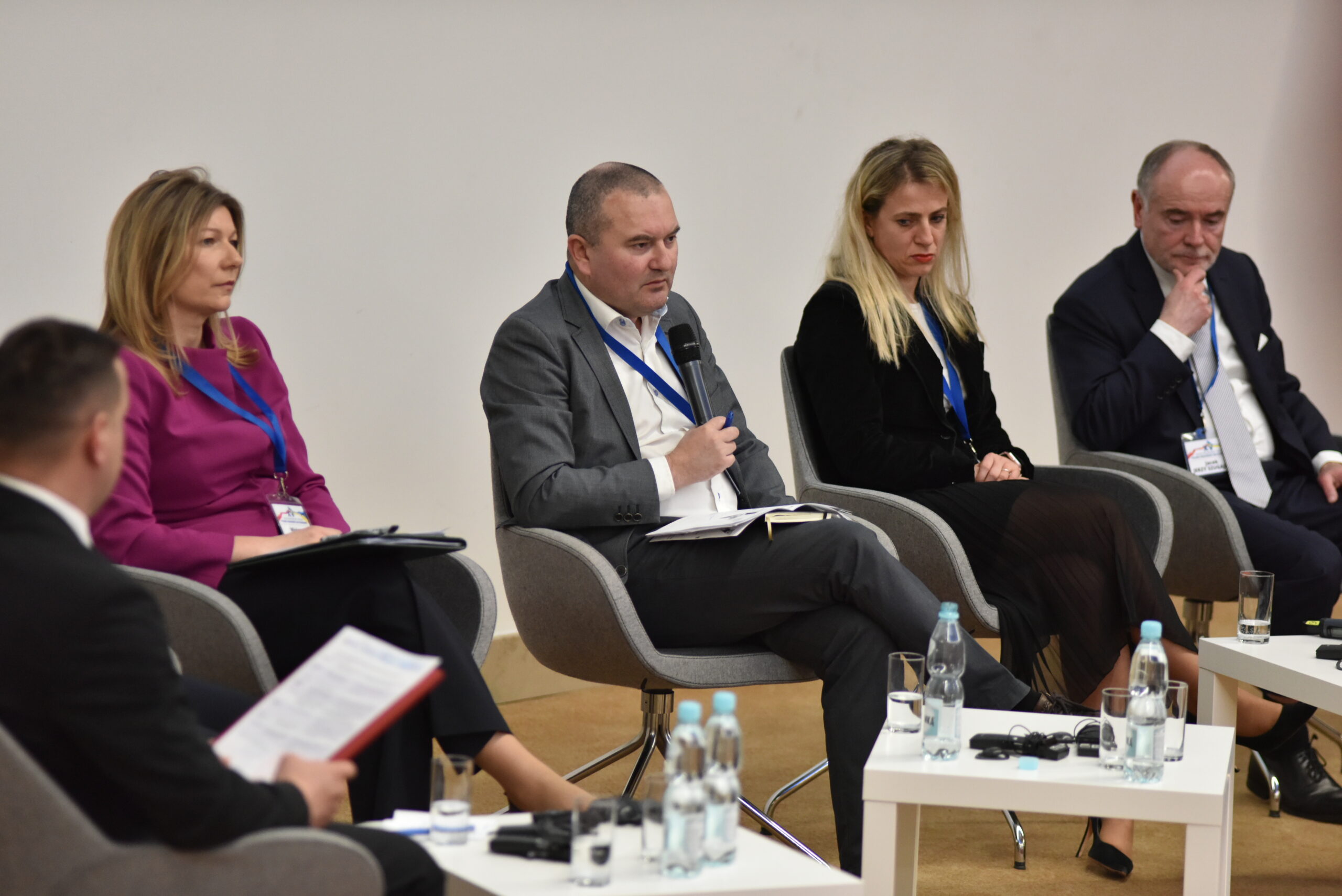
Lawyer and partner of the EUCON Legal Group Andrii Romanchuk stressed that the problems of Ukrainian and Polish startups are generally similar, but Ukrainian startups now need effective financial instruments, grants, recruitment, legal guarantees and security. The issue of networking in the new market during the relocation of the startup remains acute and open.
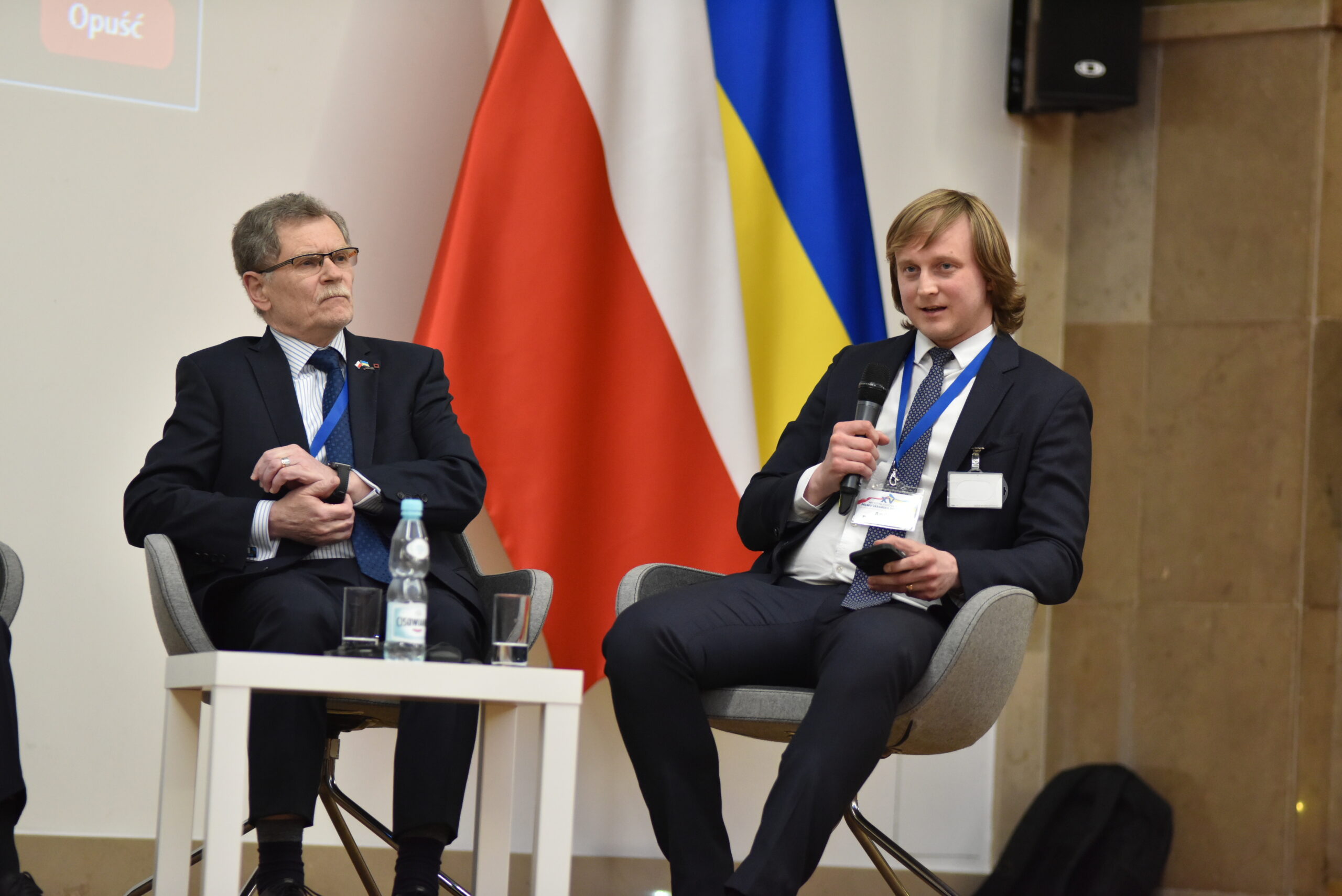
All participants of the panel spoke about the readiness of banks and organizations to take an active part in the reconstruction of Ukraine, to create special programs of support and financing and to help Ukrainian business.
Final panel discussion 4 “Mechanisms for resolving legal issues during international sanctions, trade barriers and other obstacles. Solving Customs, Tax, Accounting, Labor, and Migration Issues” was moderated by Bartosz Majewski, Director of the SGH Center for Entrepreneurship and Technology Transfer in Warsaw.
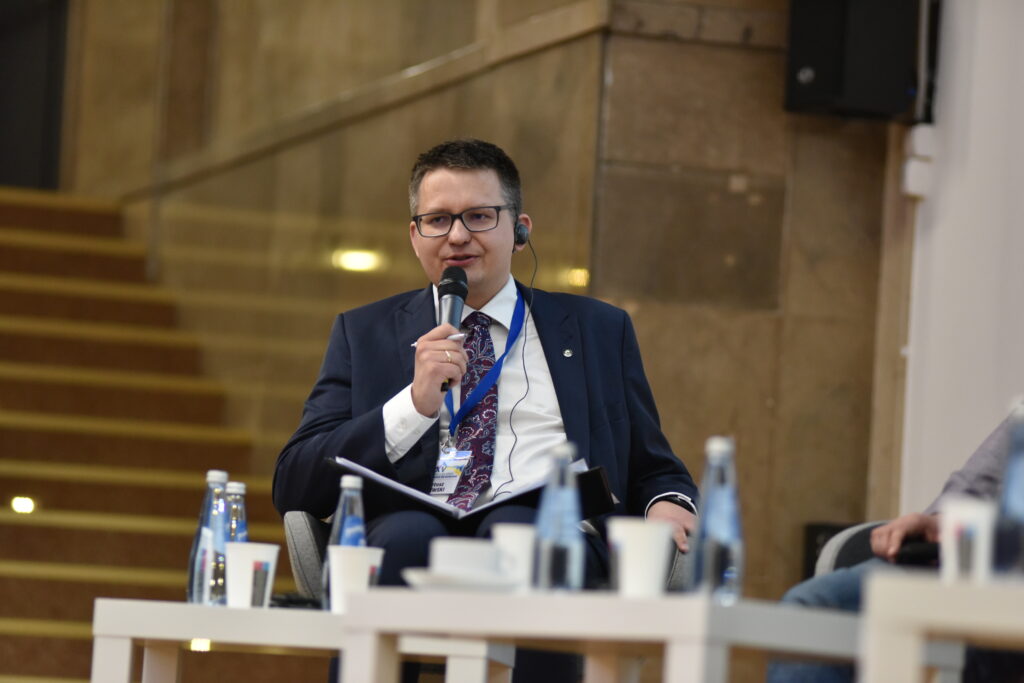
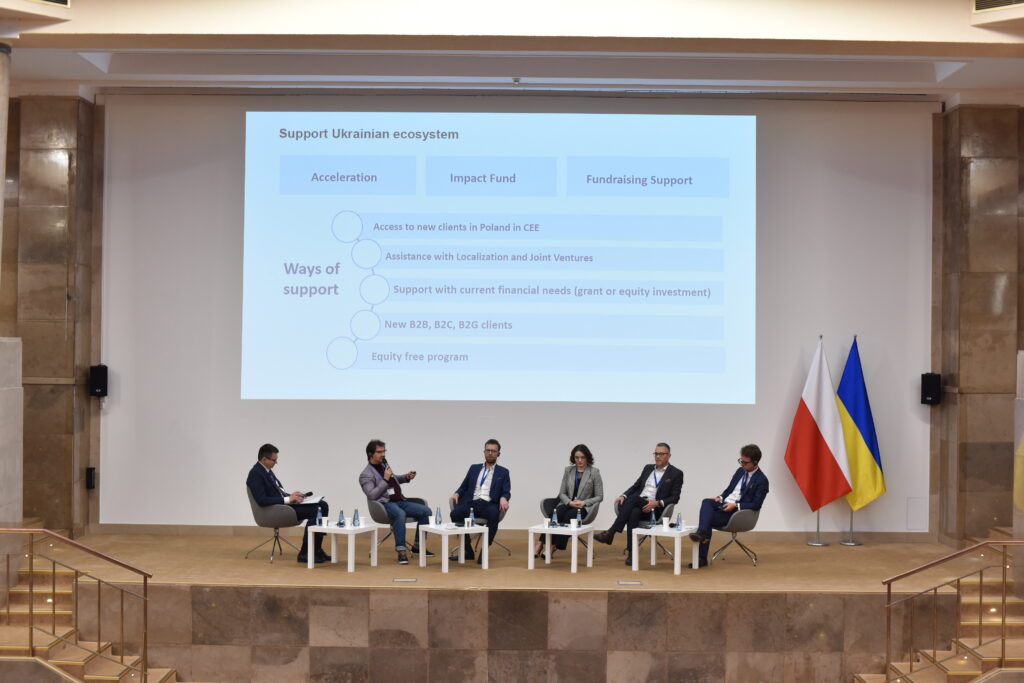
Oleksandr Romanishyn, Robinson Patman’s adviser, former Deputy Minister of Economic Development, Trade and Agriculture of Ukraine, focused on the problems of Ukrainian exports due to blocked ports, on dependence on trade relations with Russia in terms of exports and imports, the need to attract new partners, finding ways to support the Ukrainian business ecosystem and reintegration of Ukrainian professionals in Poland, increasing trade and economic relations with other countries.
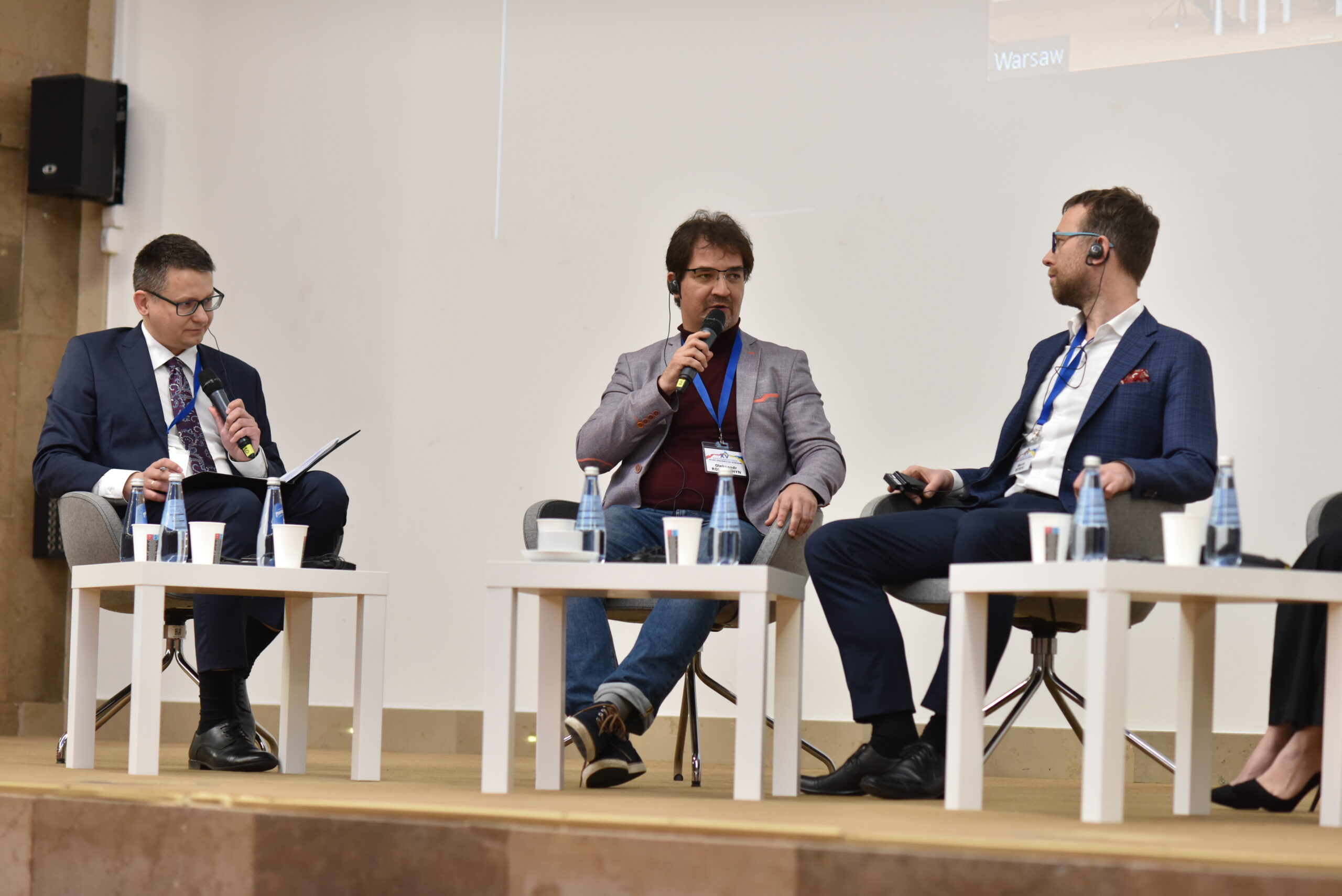
Dr. Marek Jeżewski, Lawyer, Partner, and Head of Dispute Resolution at Kochańskı & Partners Spółka Komandytowa, voiced his views on the forms and modes of compensations of Russia for the damage caused to Ukraine by brutal military aggression and the levels of responsibility for crimes committed against Ukraine internationally.
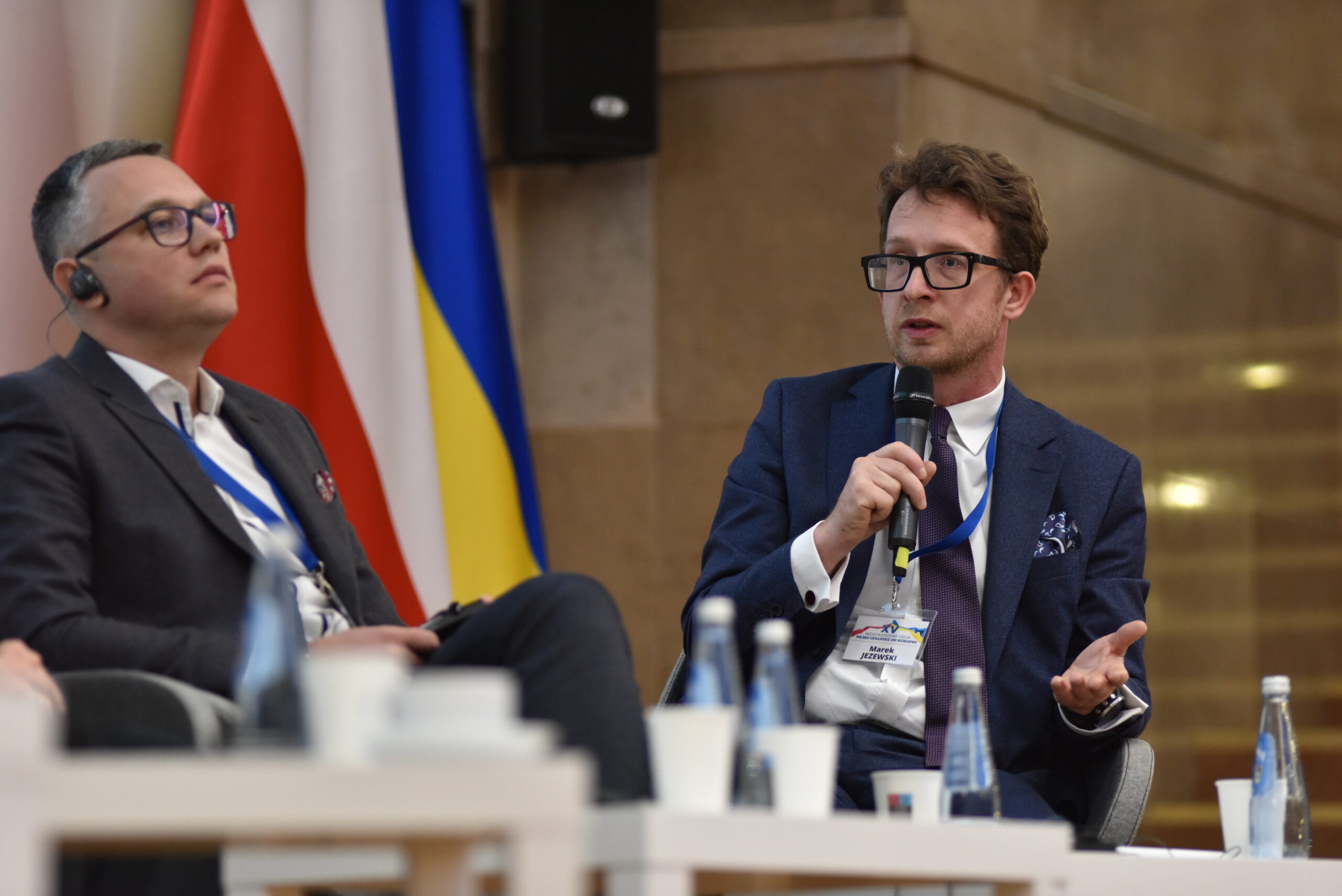
Andrii Zhuk, Chairman of the Board of the Association of Retailers of Ukraine, presented statistics on the losses of the retail market in Ukraine, the number of large retailers that lost the most physical stores, and the financial losses inflicted on them. The speaker noted the relative stabilization of retail sales in some areas and the resumption of work in quiet regions. According to the expert, Ukrainian retailers are interested in entering the Polish market despite financial and personnel problems.
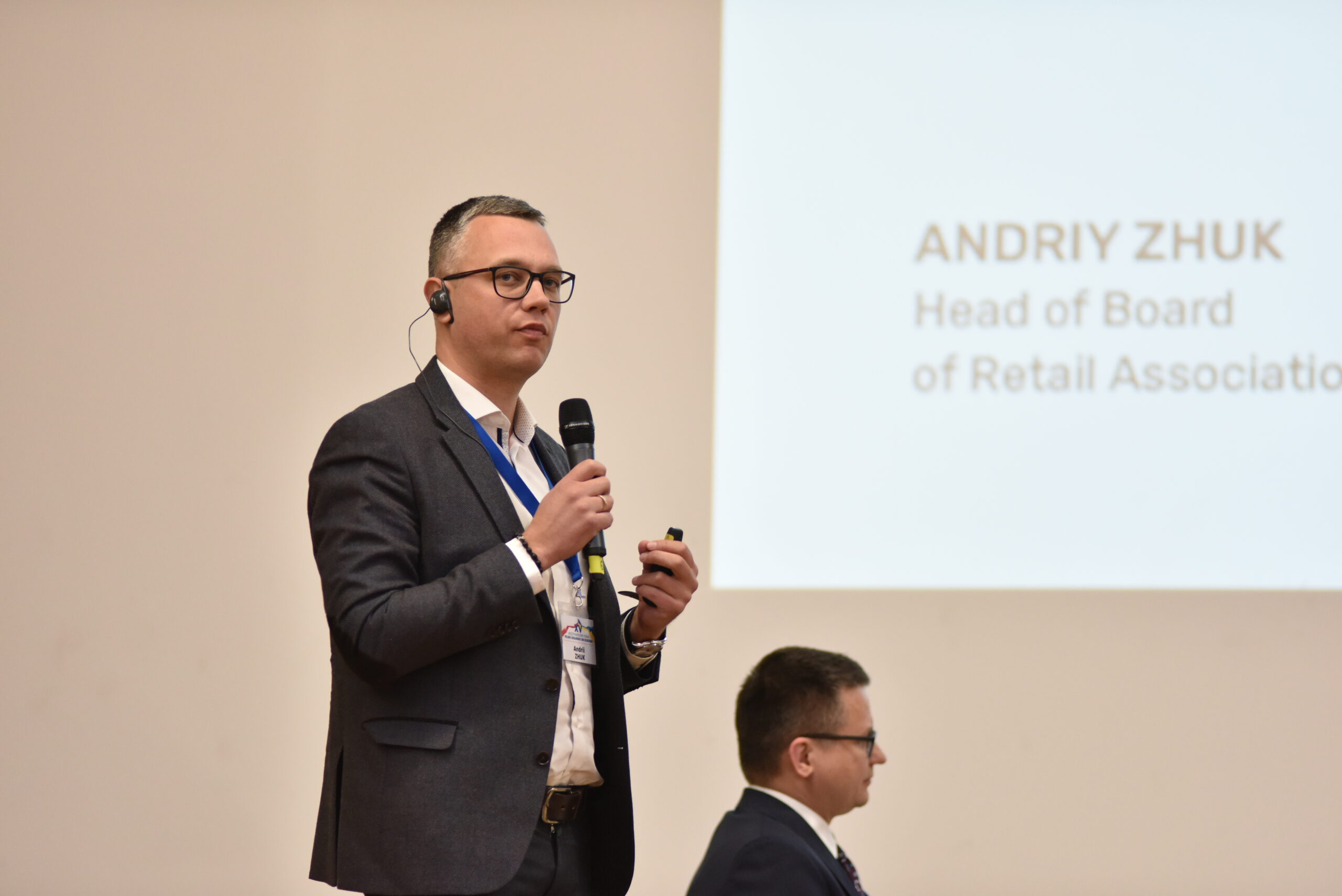
The founder of the Business Intelligence Club, Marcin Rutecki, focused on the issues of new risks faced by entrepreneurs and risks in the future. According to the speaker, time will tell what the changes will be – short-term or long-term, but the exchange of intellectual, labor and economic resources will definitely have positive consequences. Legislation and systemic solutions are needed for many problematic aspects, but the wide range of available solutions should be used, and e-commerce is a challenge not only in a military context but also in an economic one.
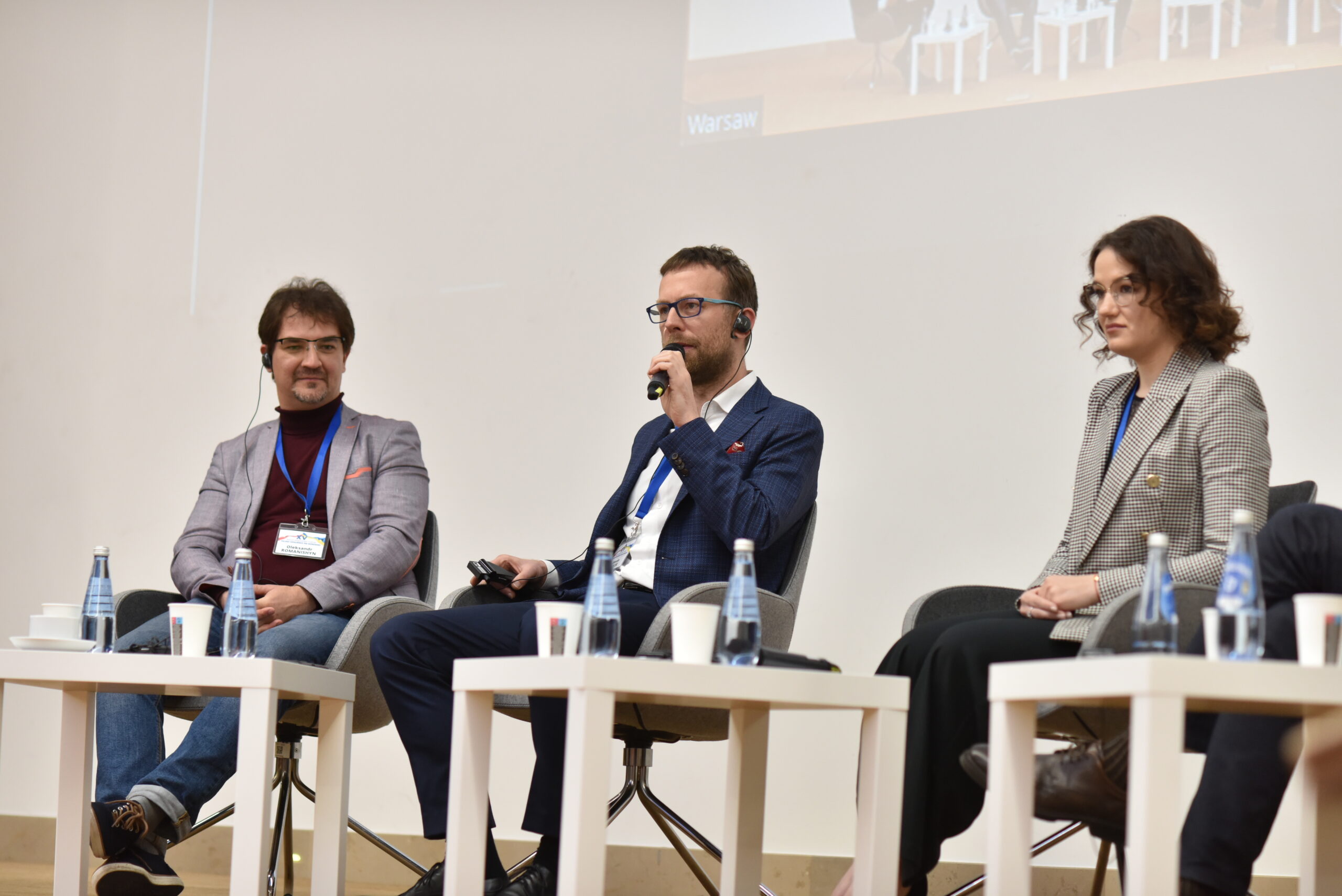
Maksym Zinchenko, Head of business development projects and programs at YouControl, noted the continuity of the work process, which is important in the context of supporting Ukraine on the economic front.
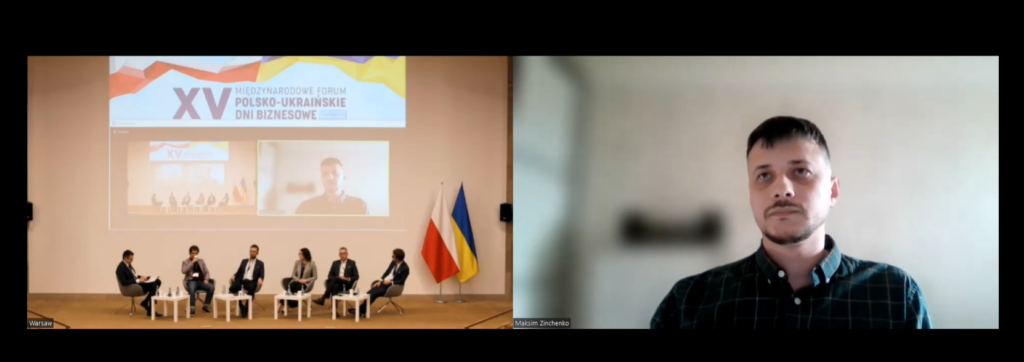
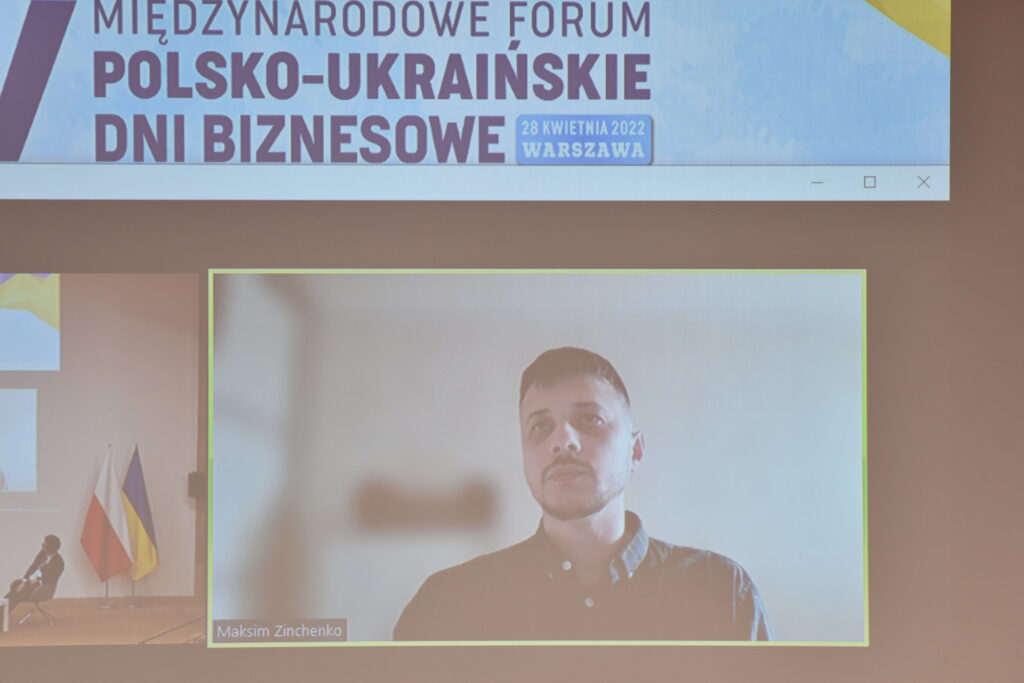
Inha Livandovska, a senior lawyer at the EUCON Legal Group, spoke about overcoming the panic of Ukrainian business at the beginning of the war and the gradual adaptation of Ukrainian entrepreneurs, awareness of urgent needs, including business relocation. The speaker did not miss the issue of difficulties in the field of legal advice on relocation, in particular in the aspects of signing PESEL during the war and opening bank accounts remotely.
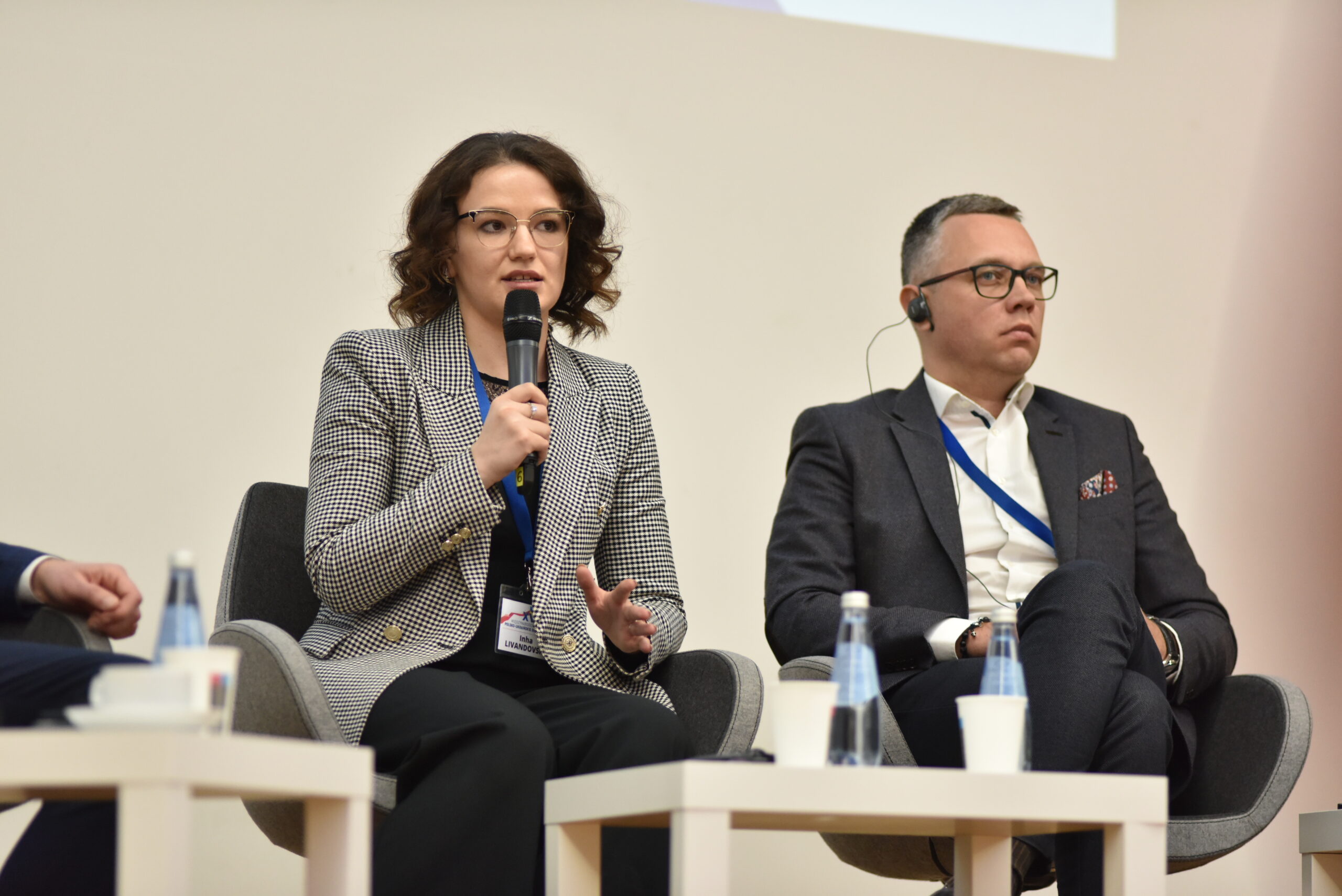
The event ended with a farewell speech with gratitude to all speakers and participants, the organizers of the forum stressed the importance of the event in the context of strengthening Polish-Ukrainian ties in all areas and expressed optimism about fruitful cooperation not only now. So together to victory and hoping to see you soon!